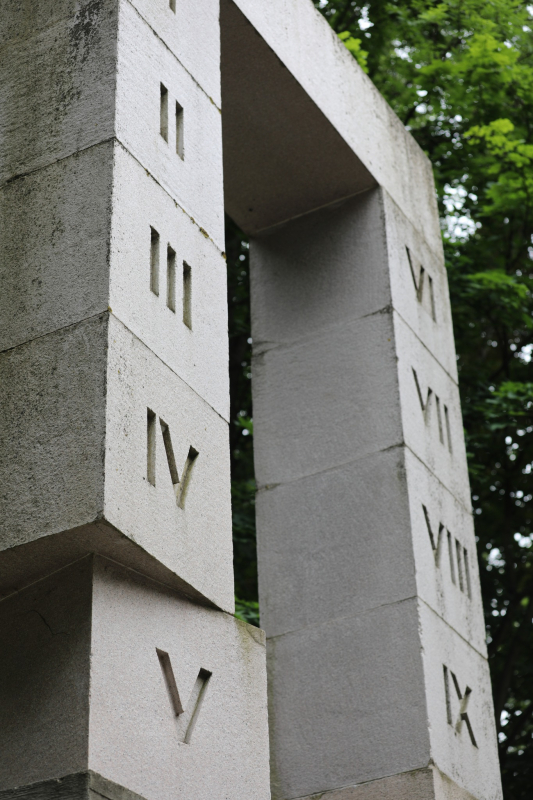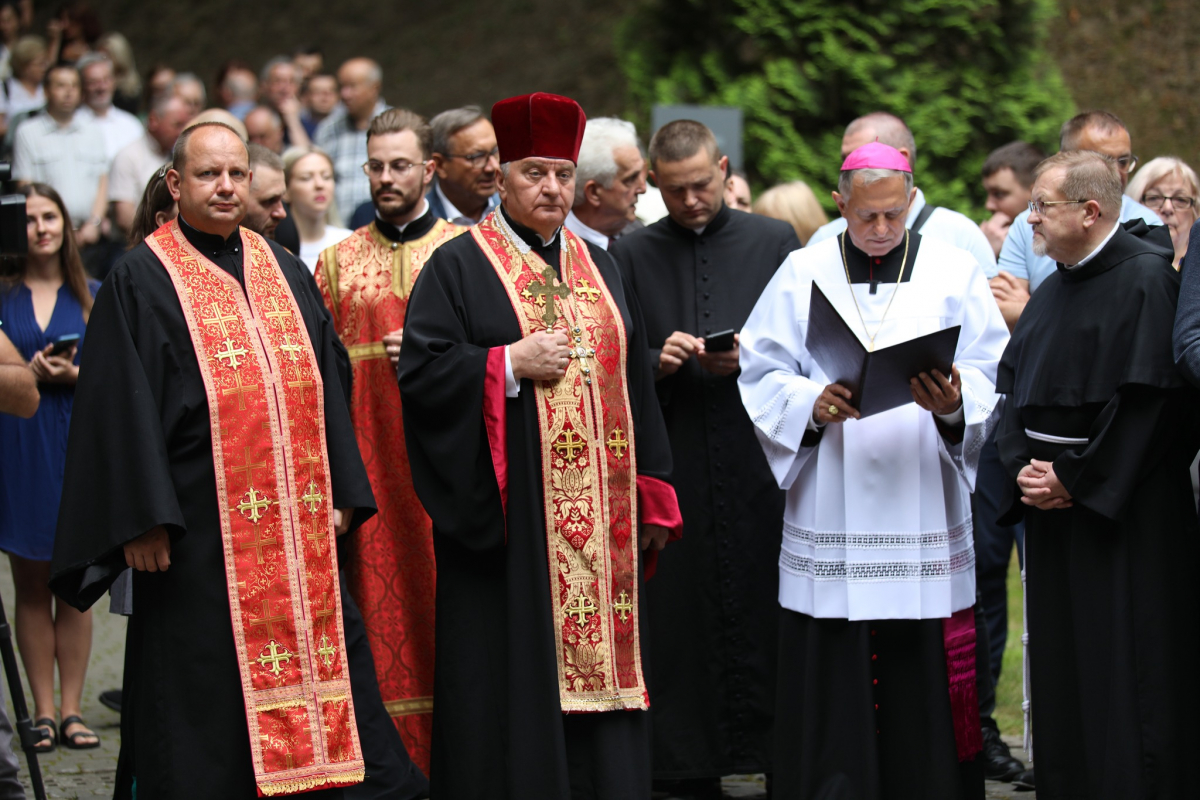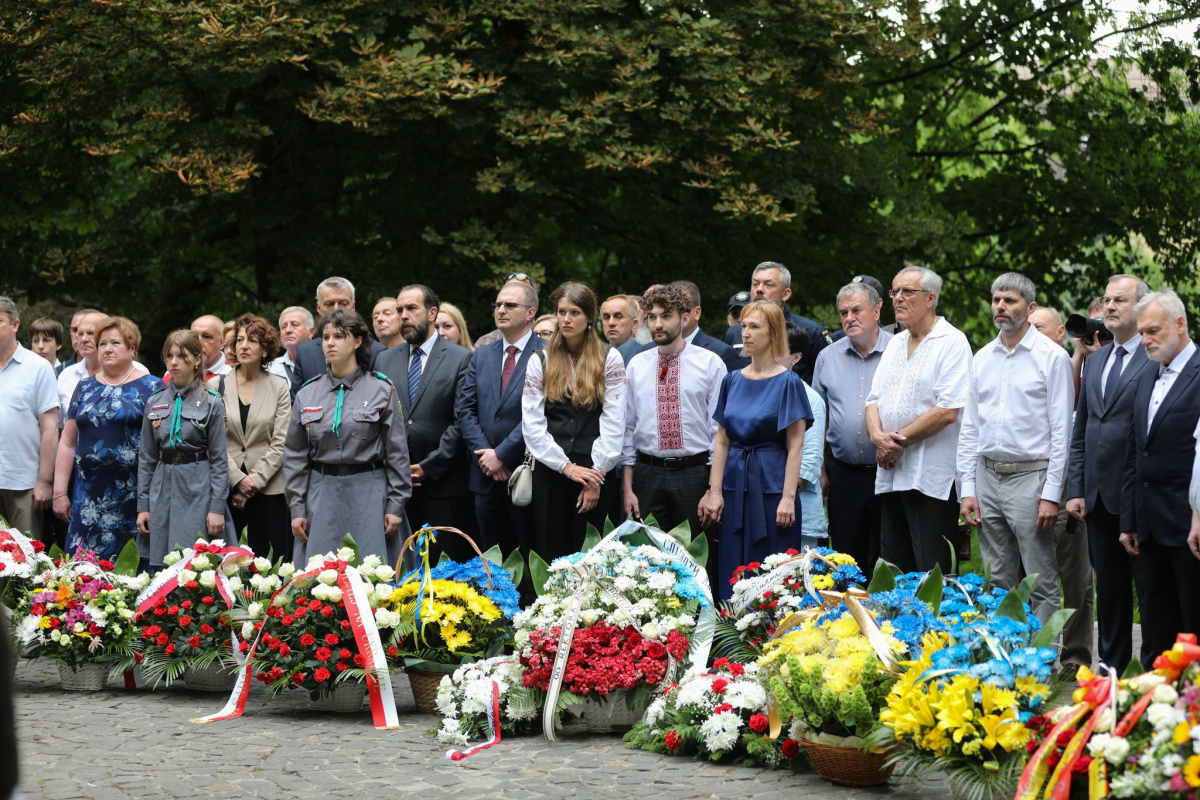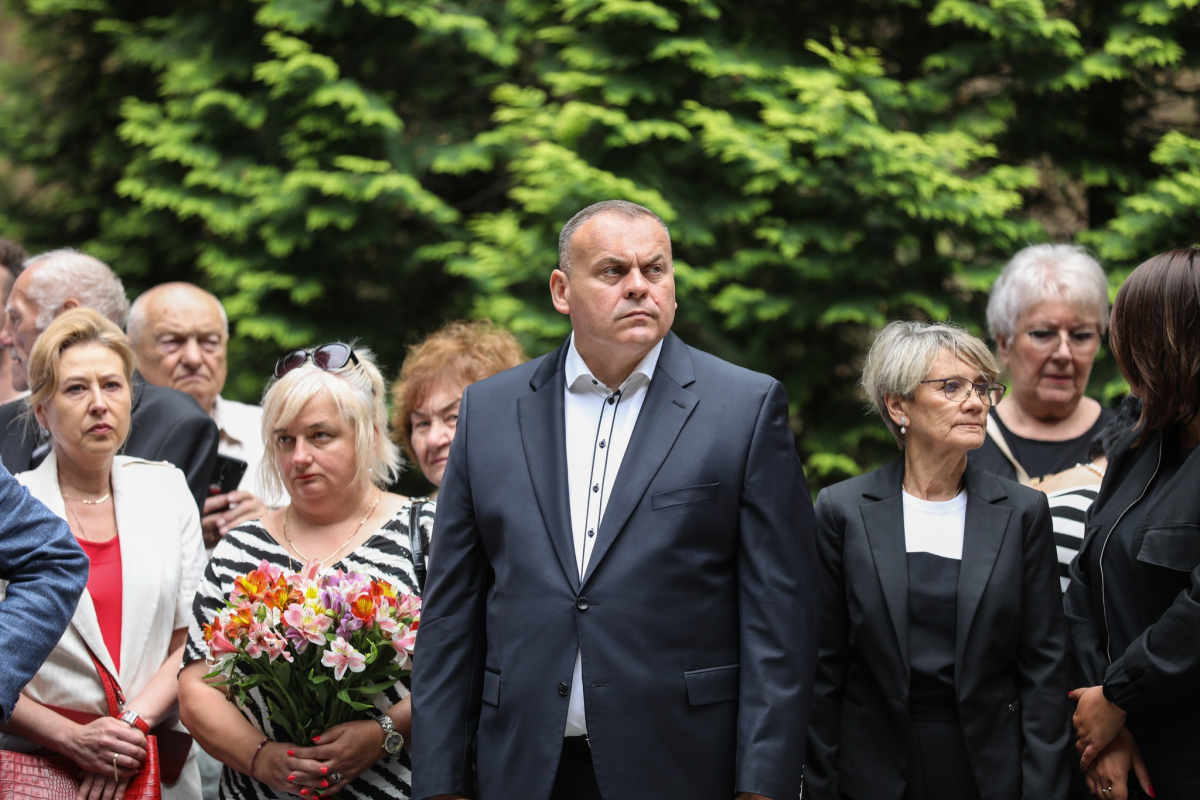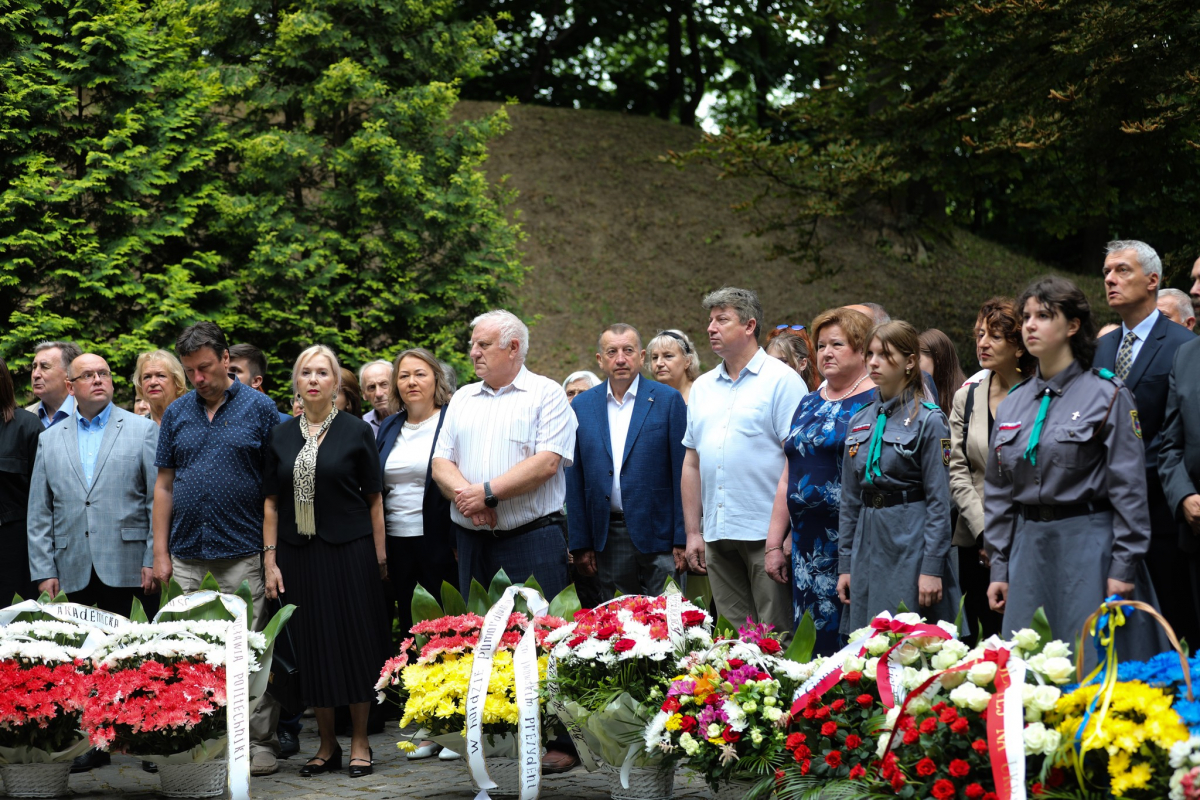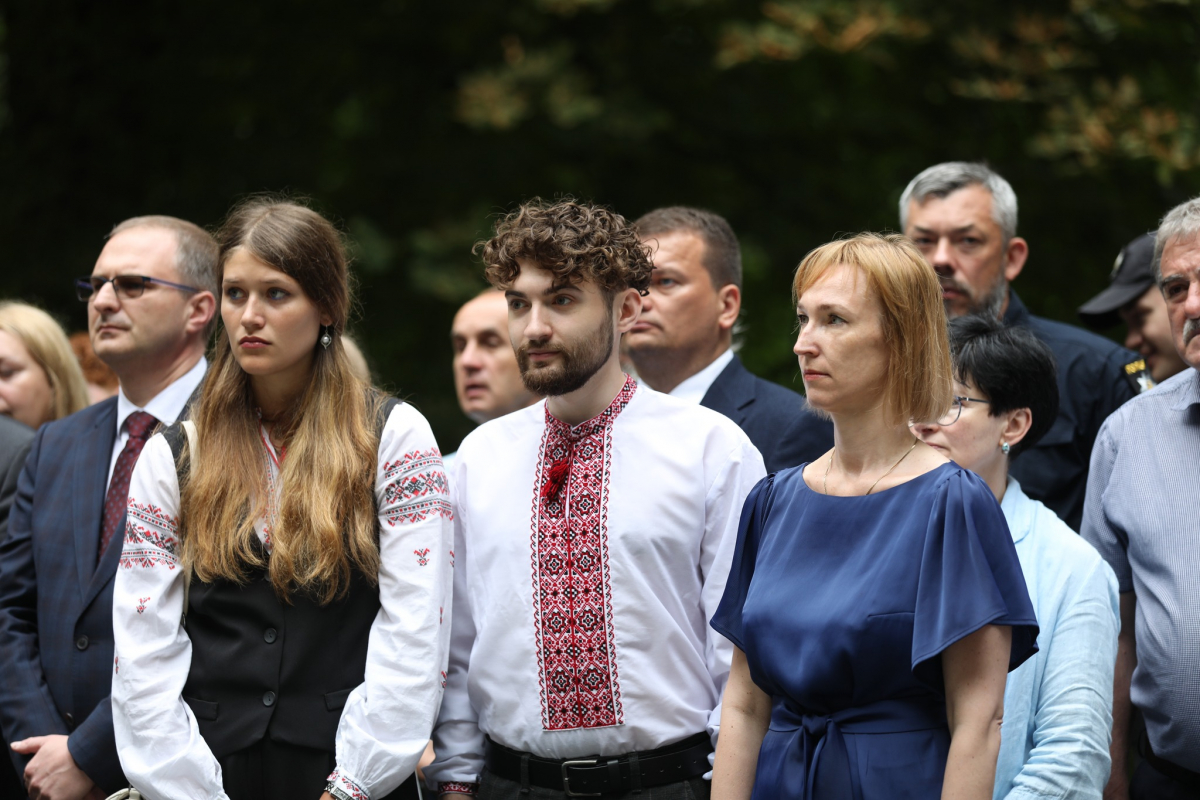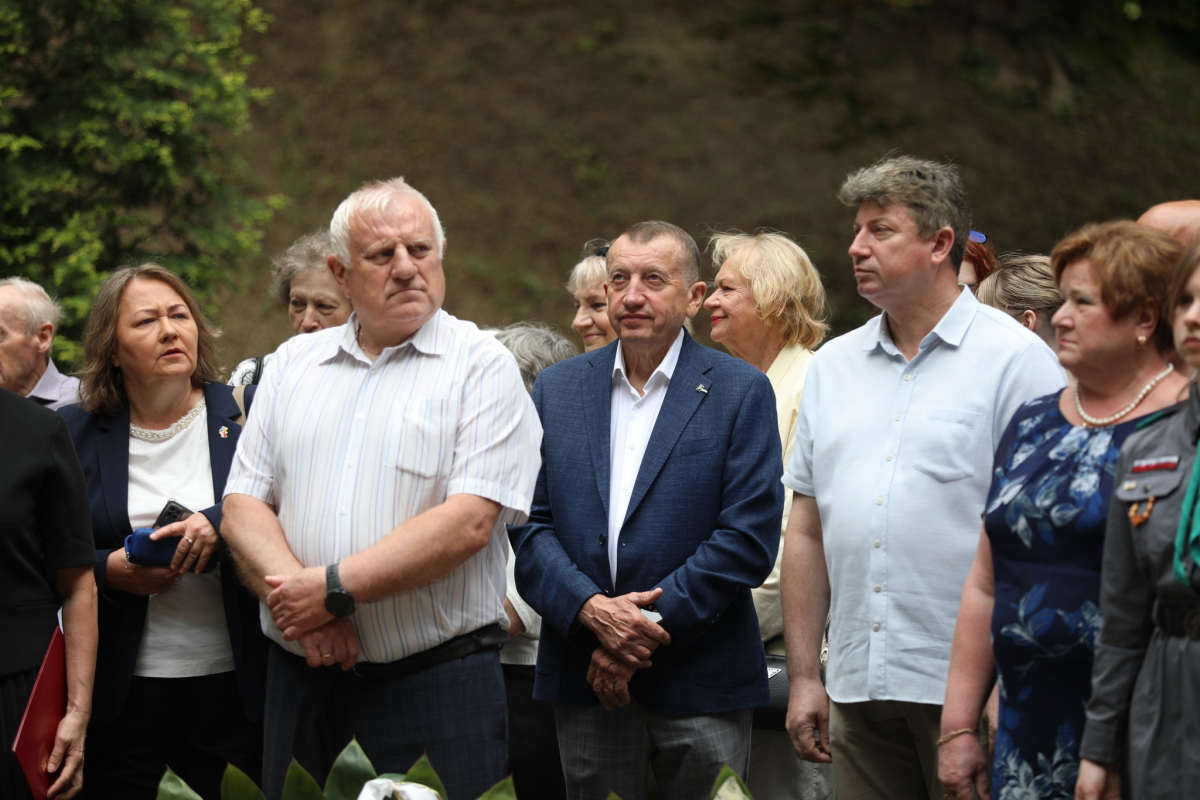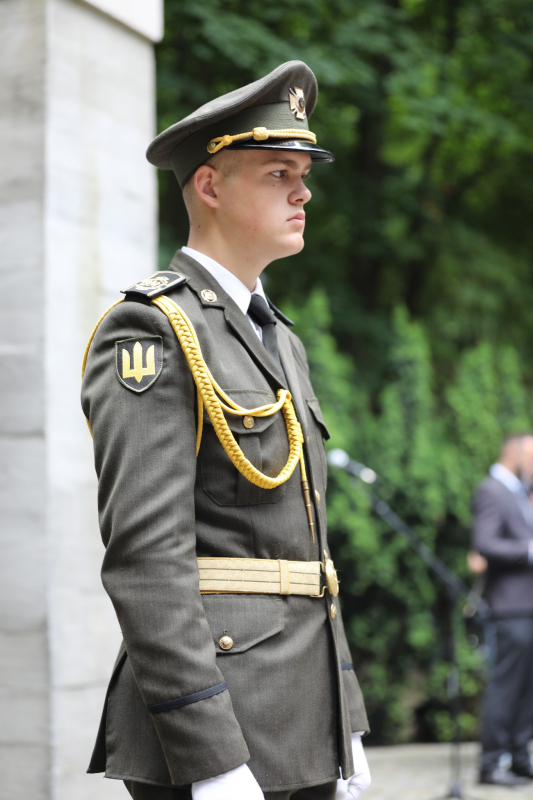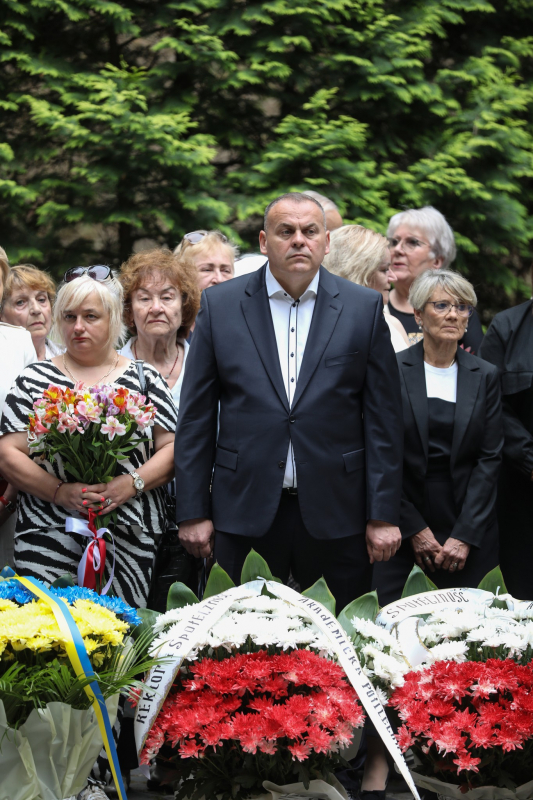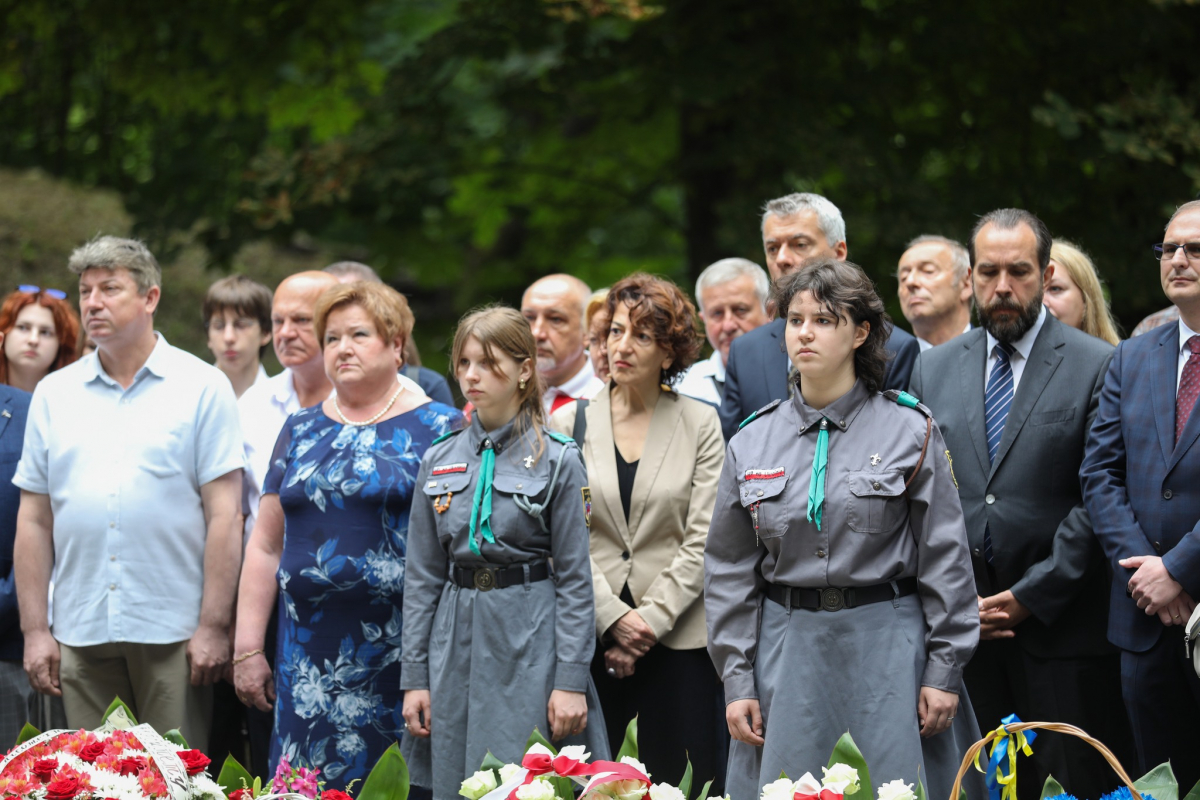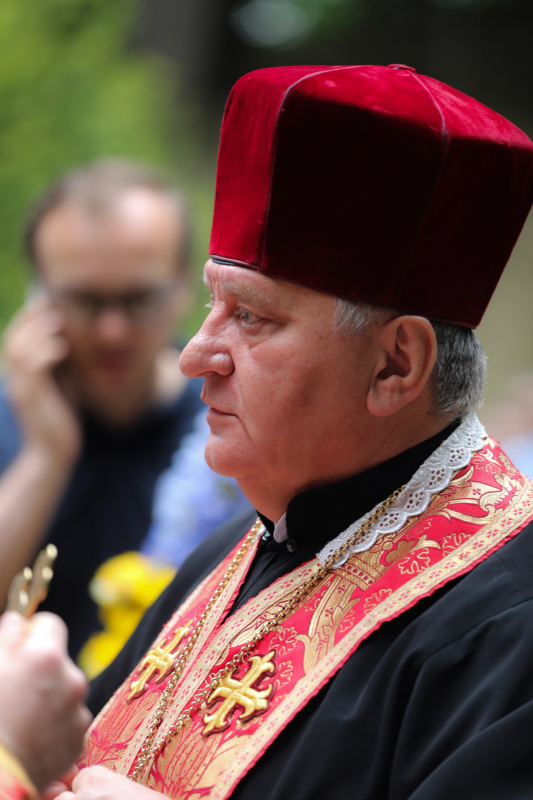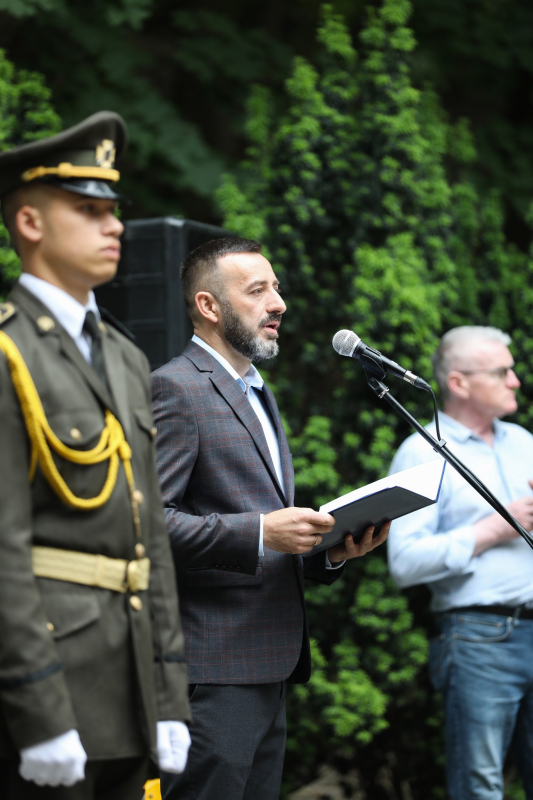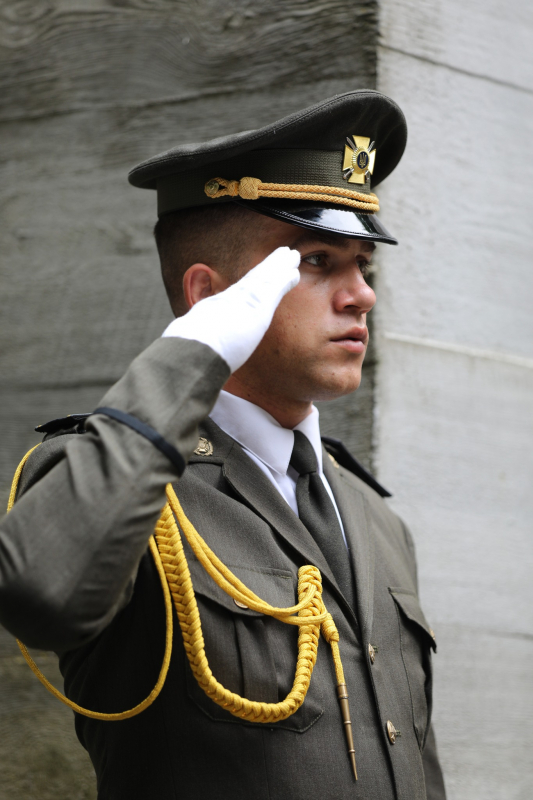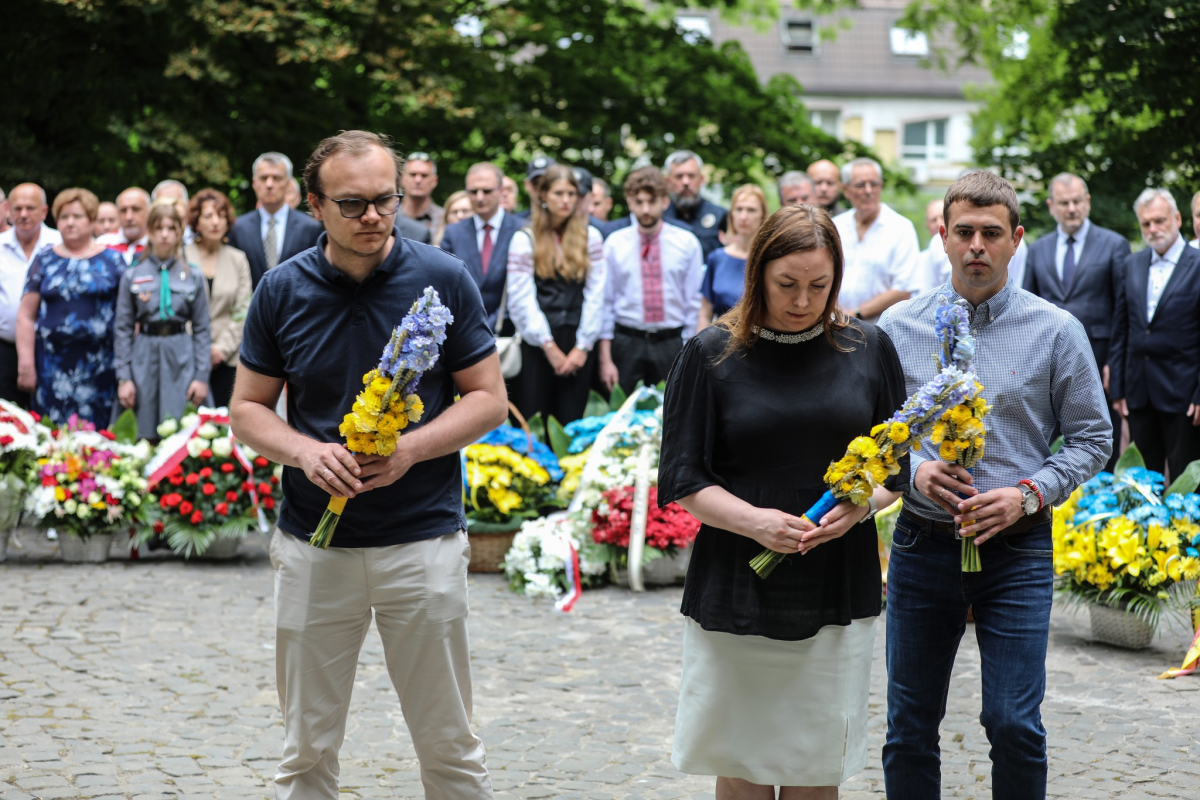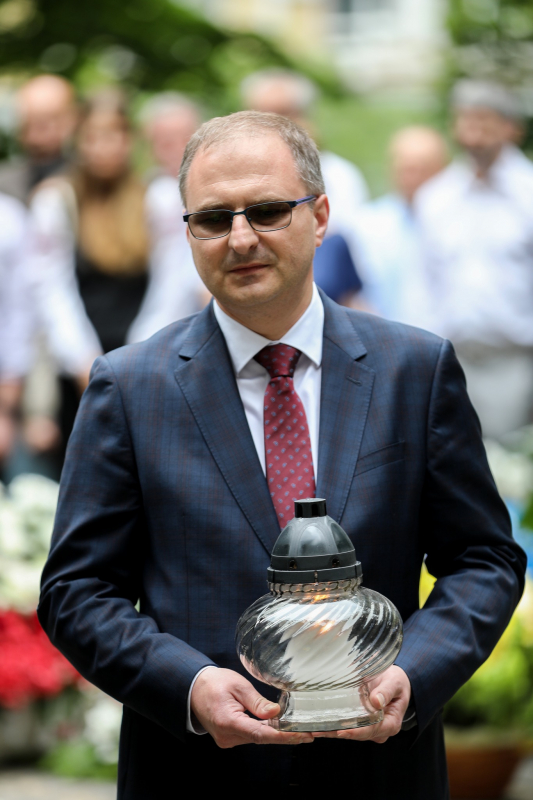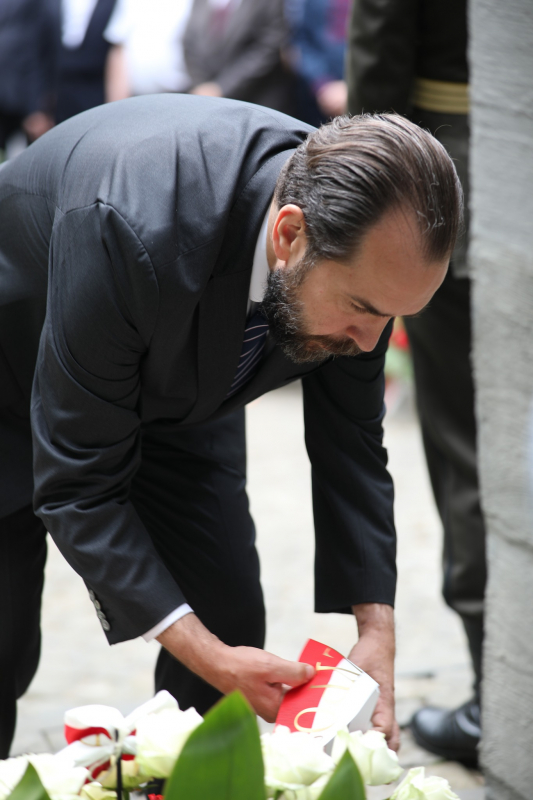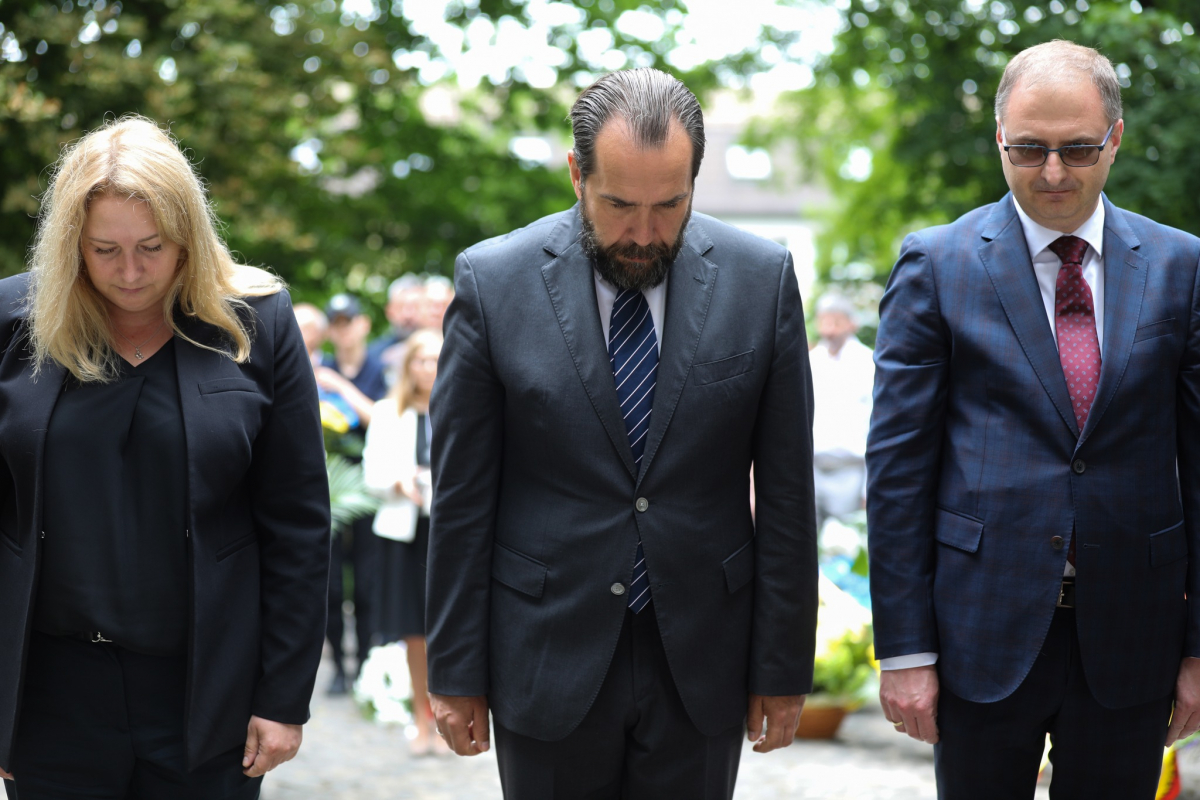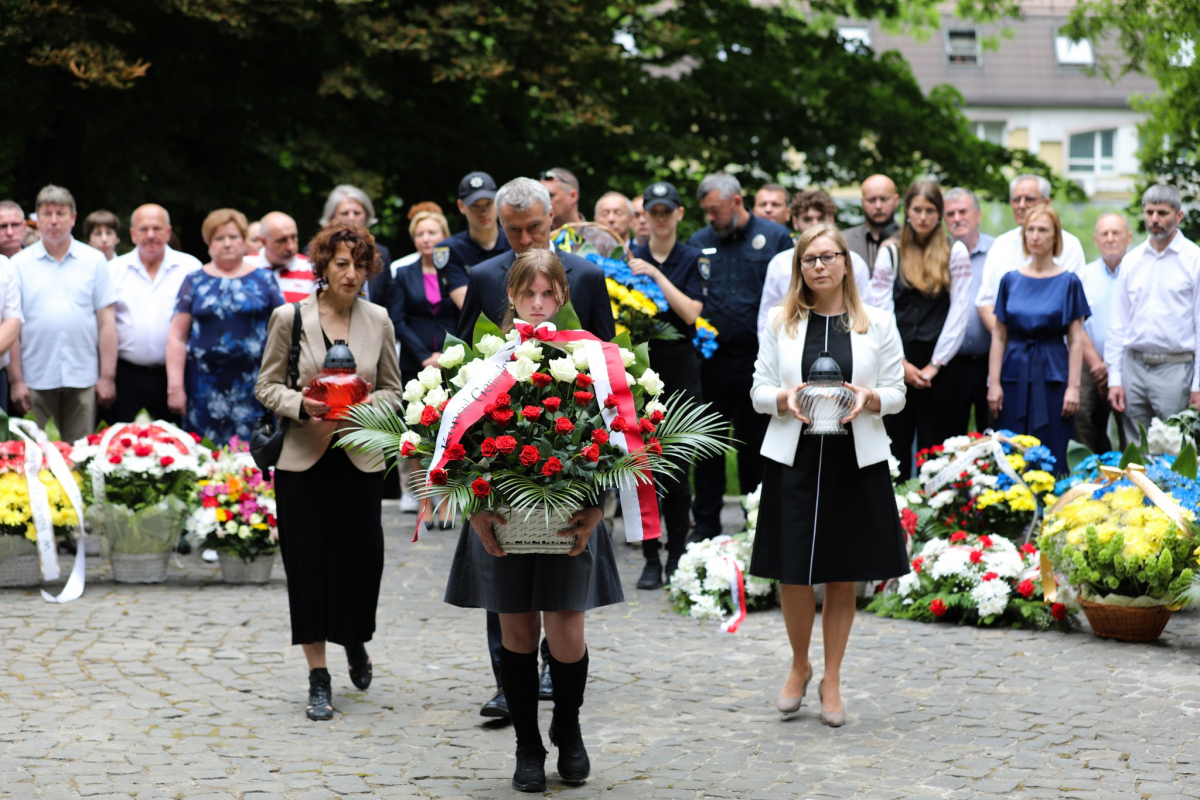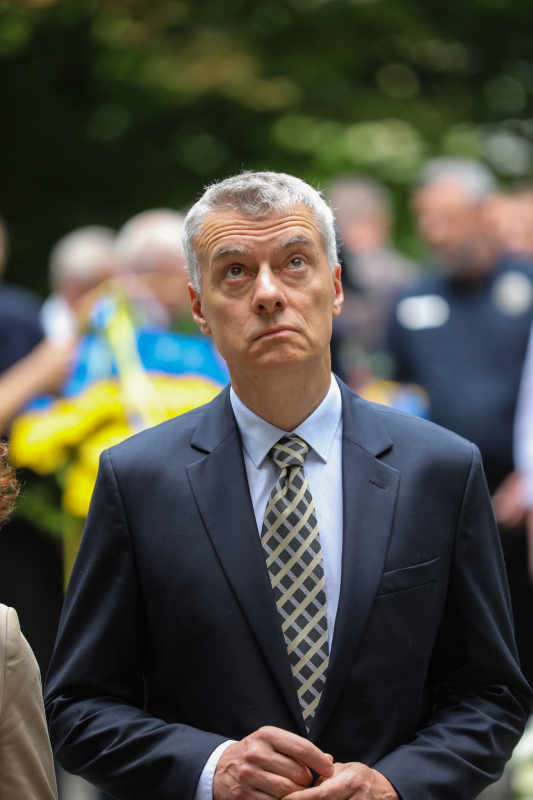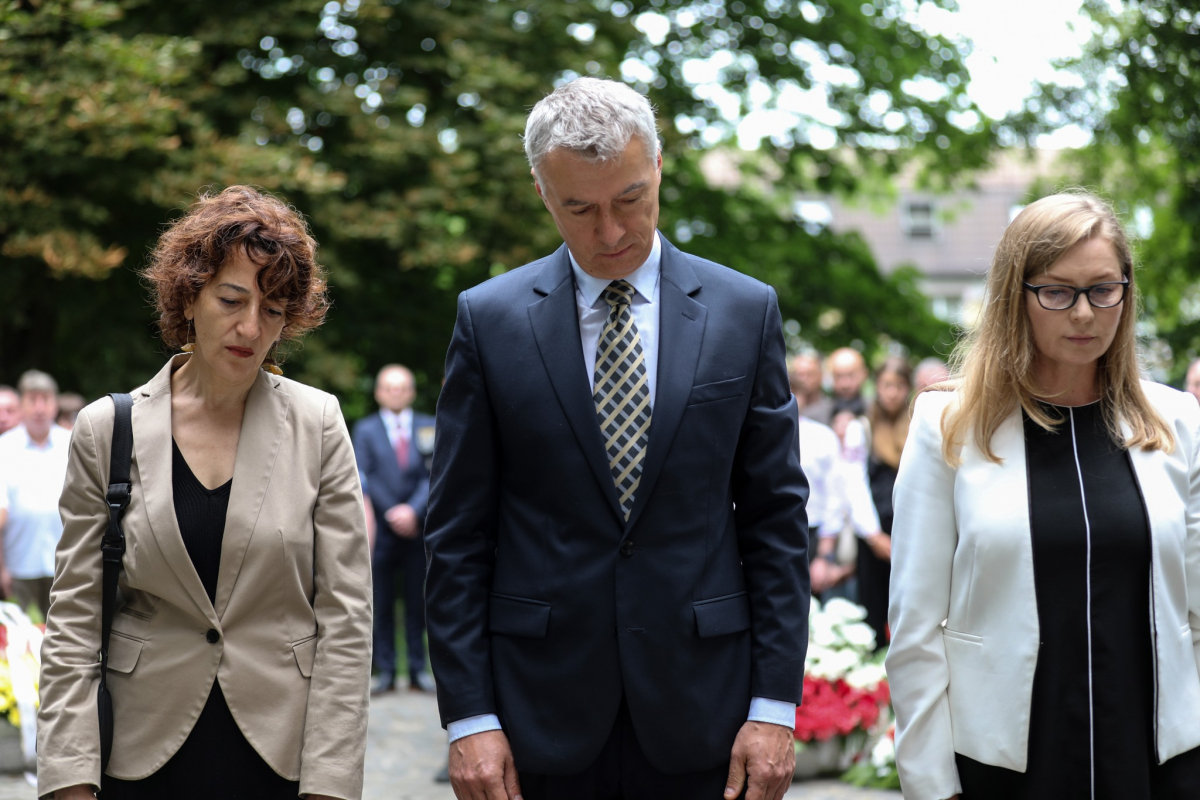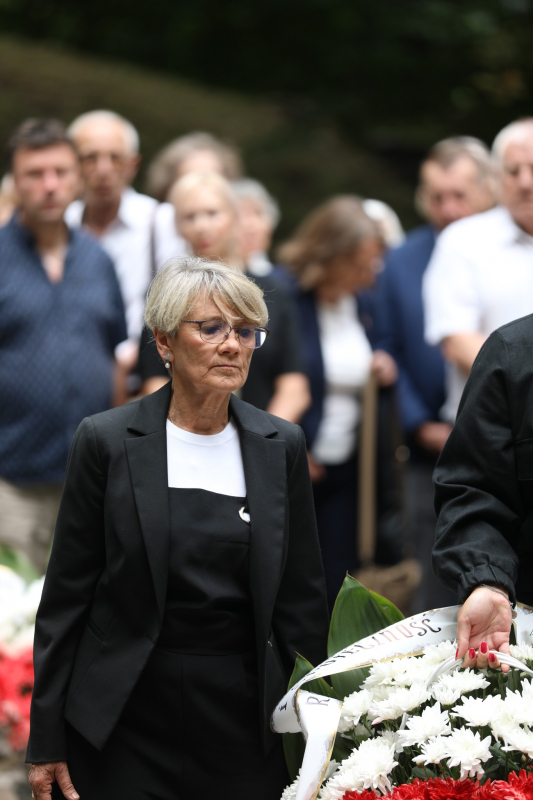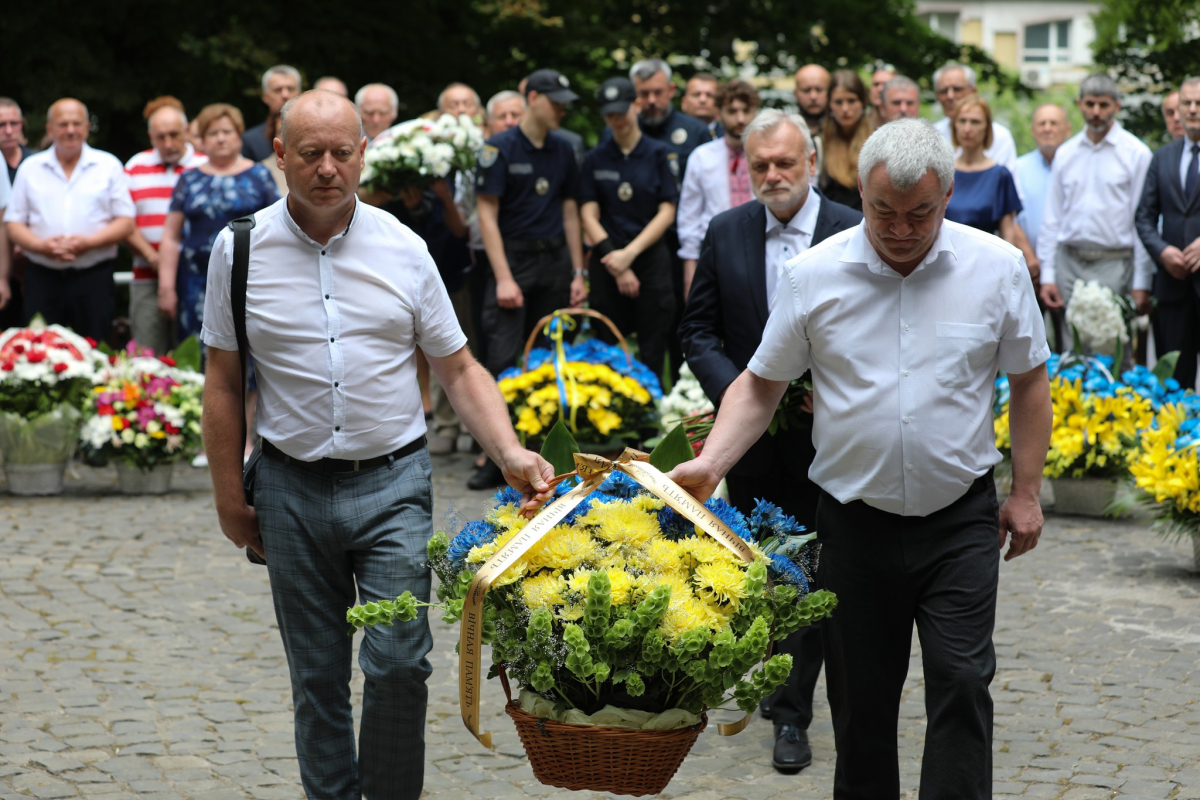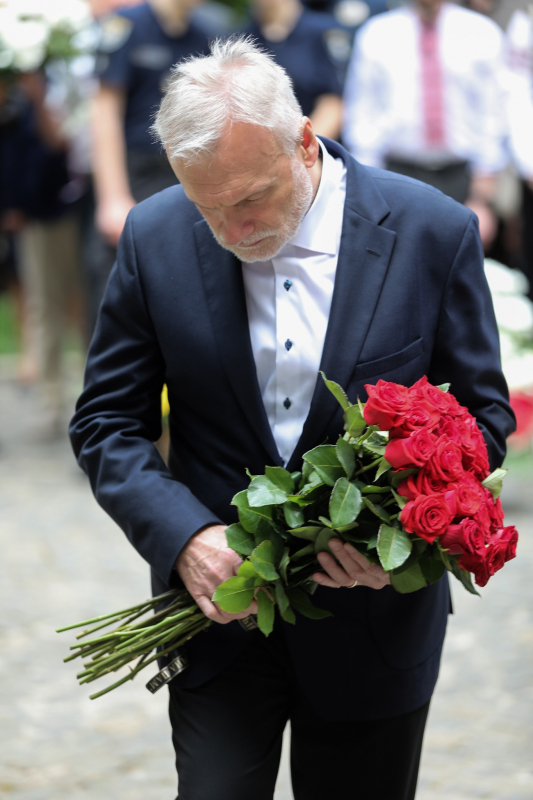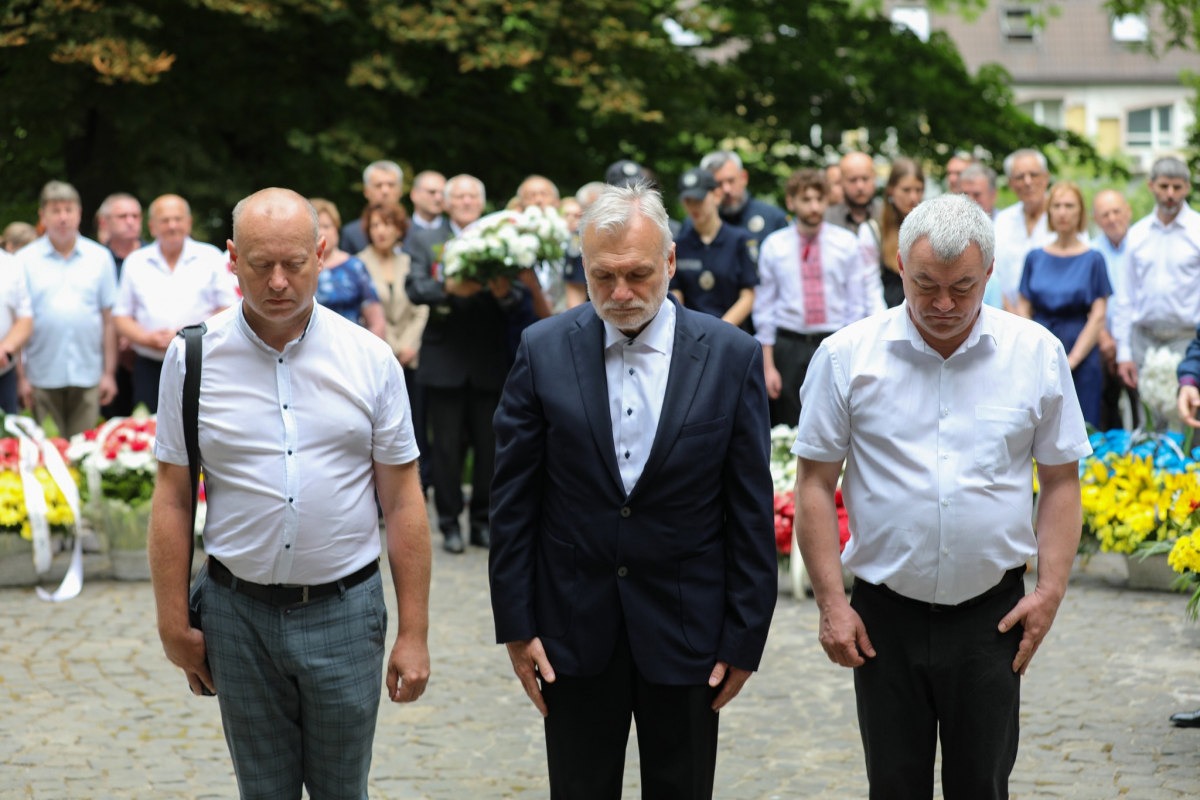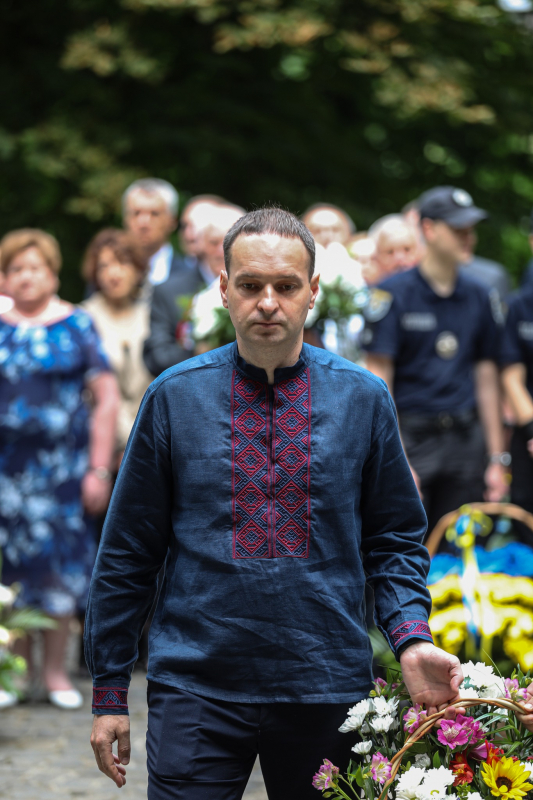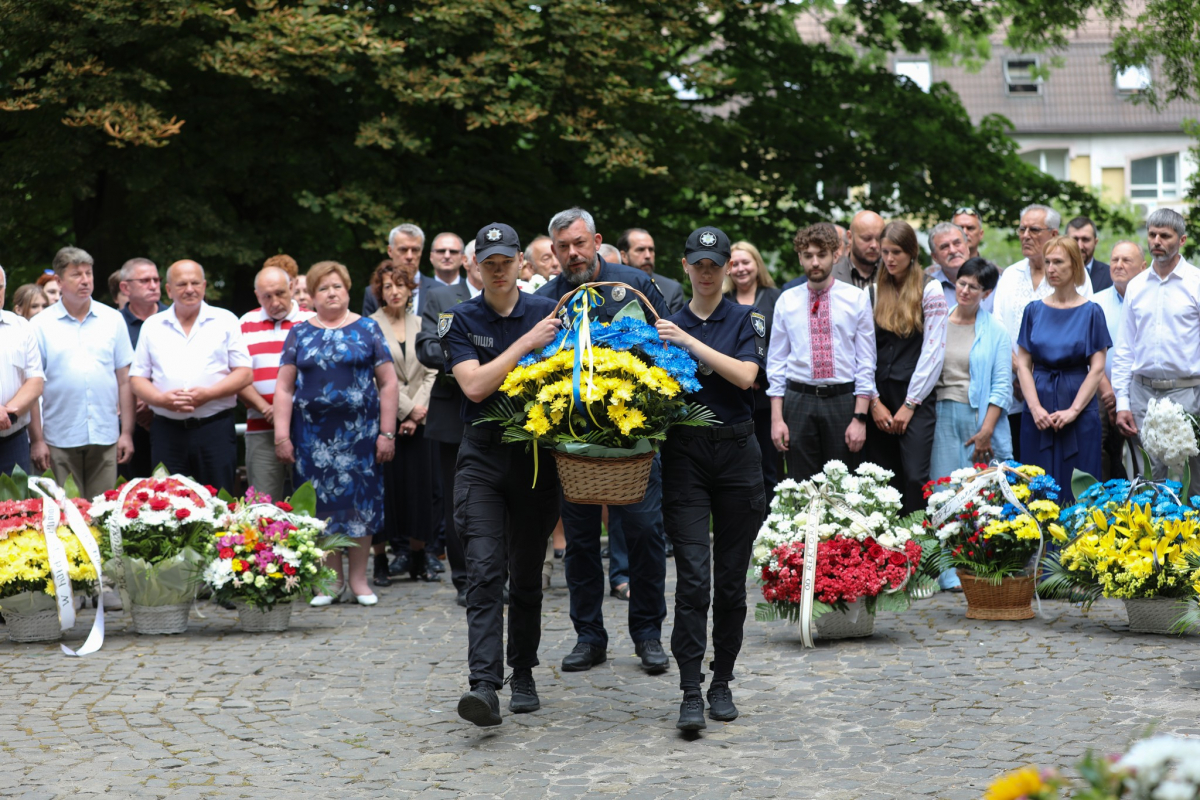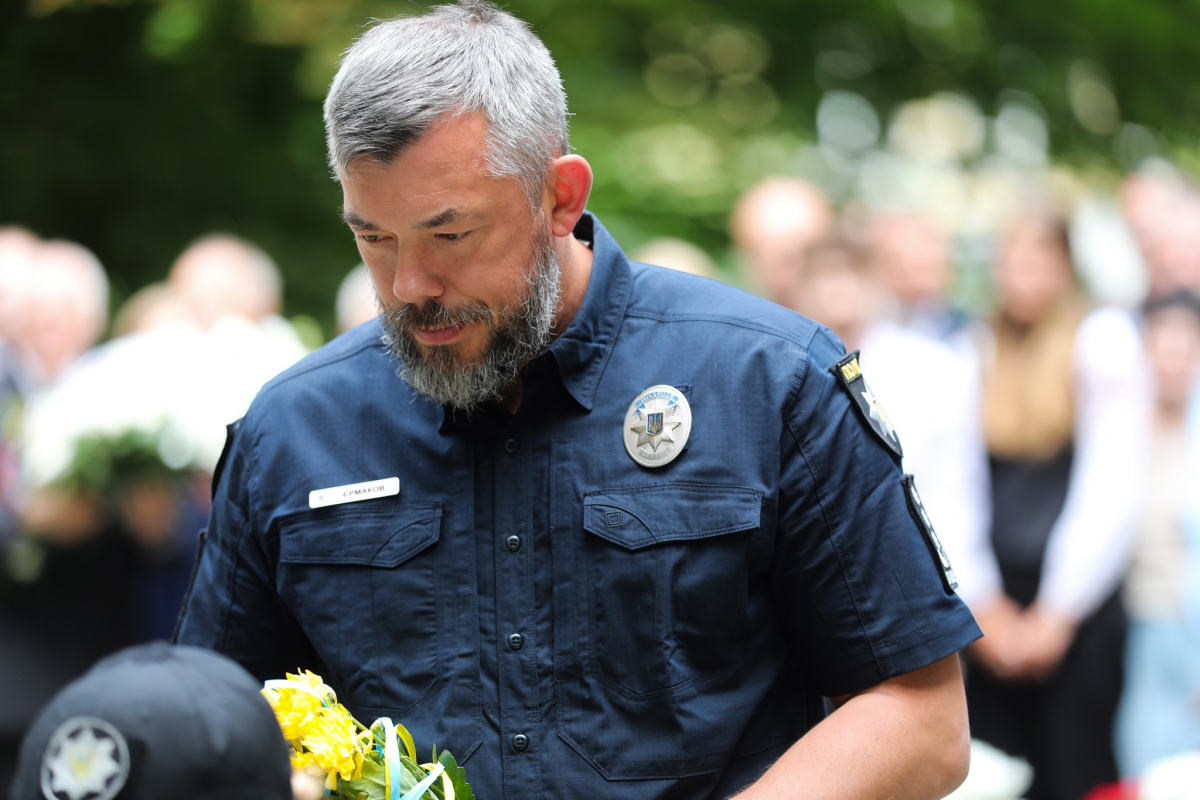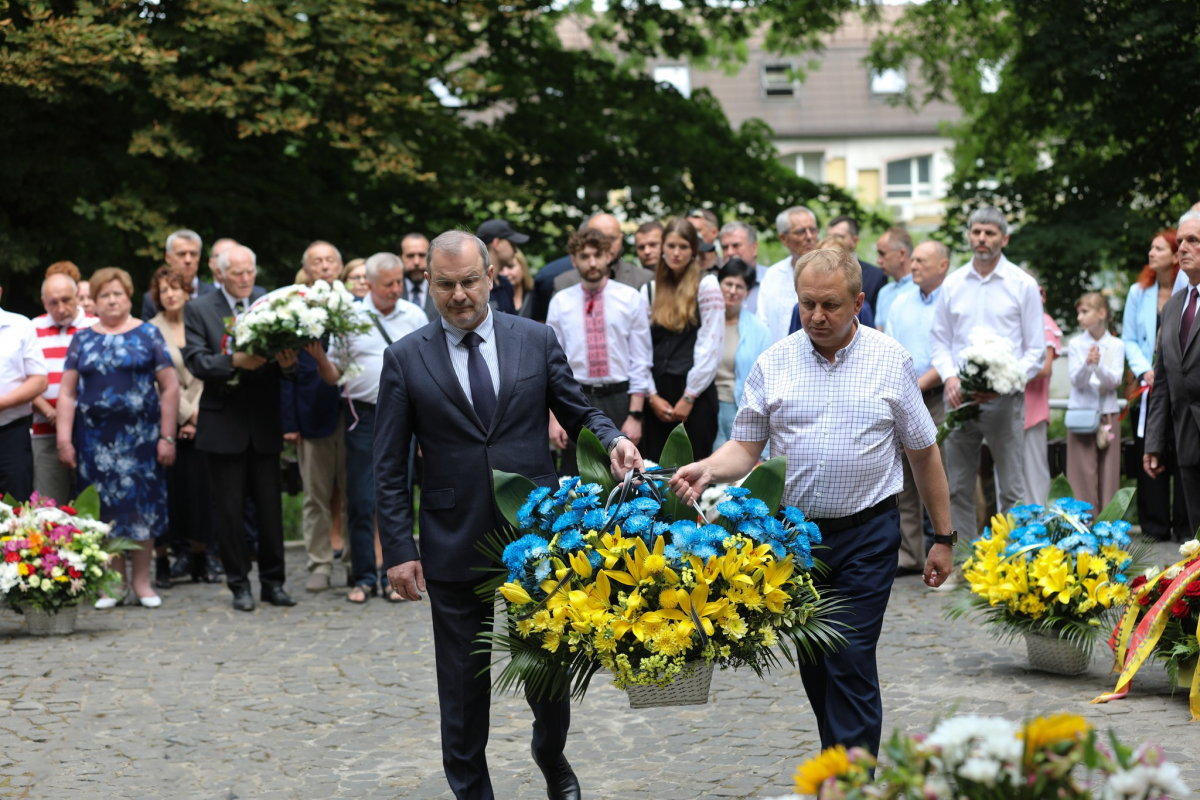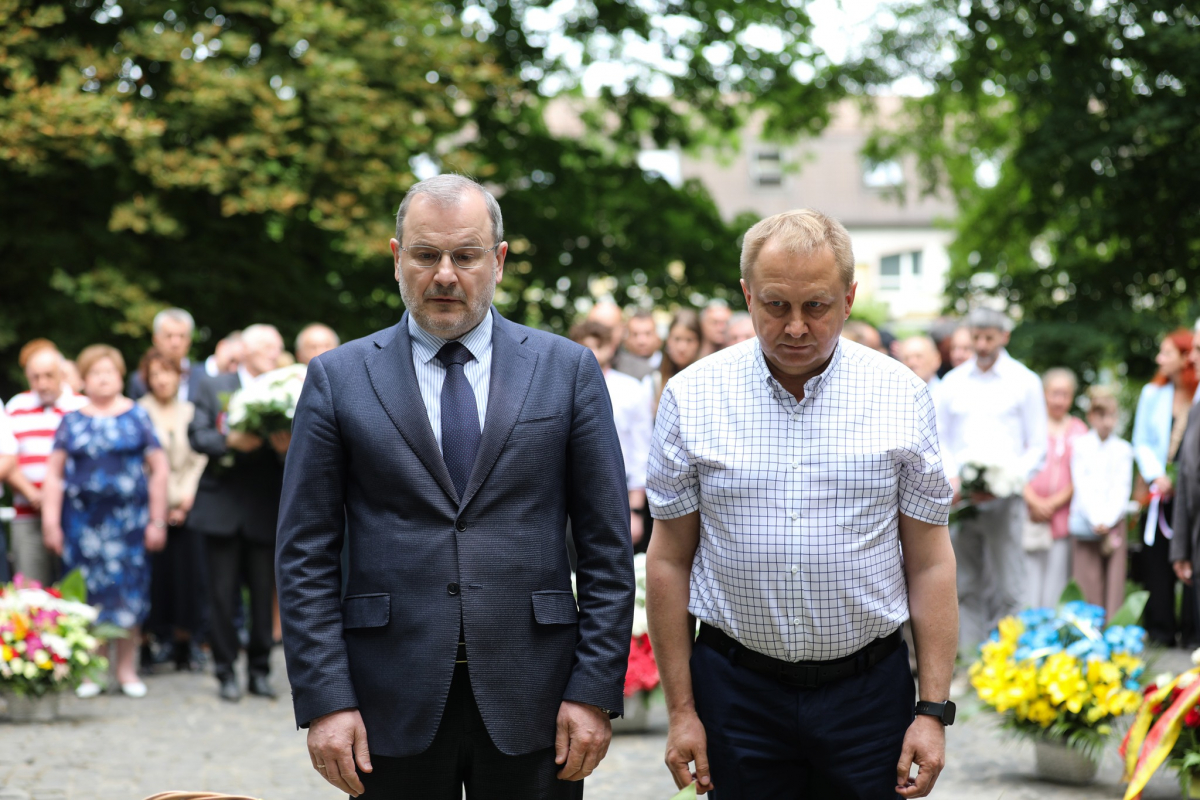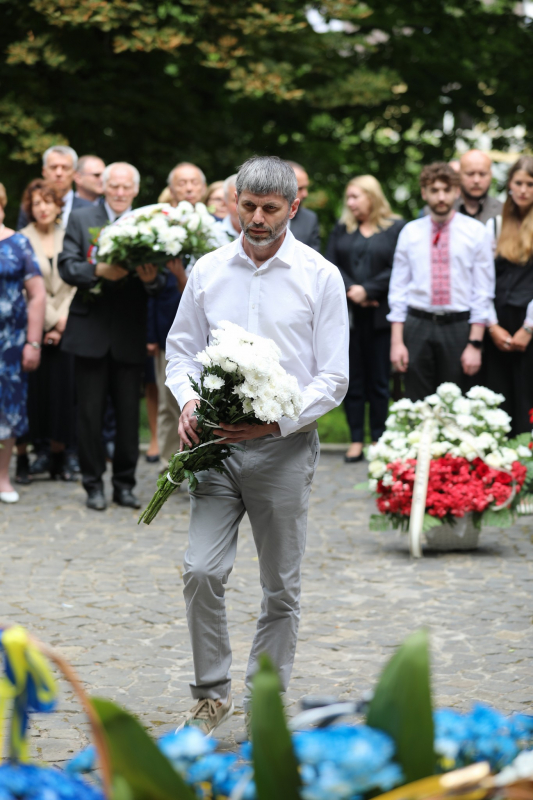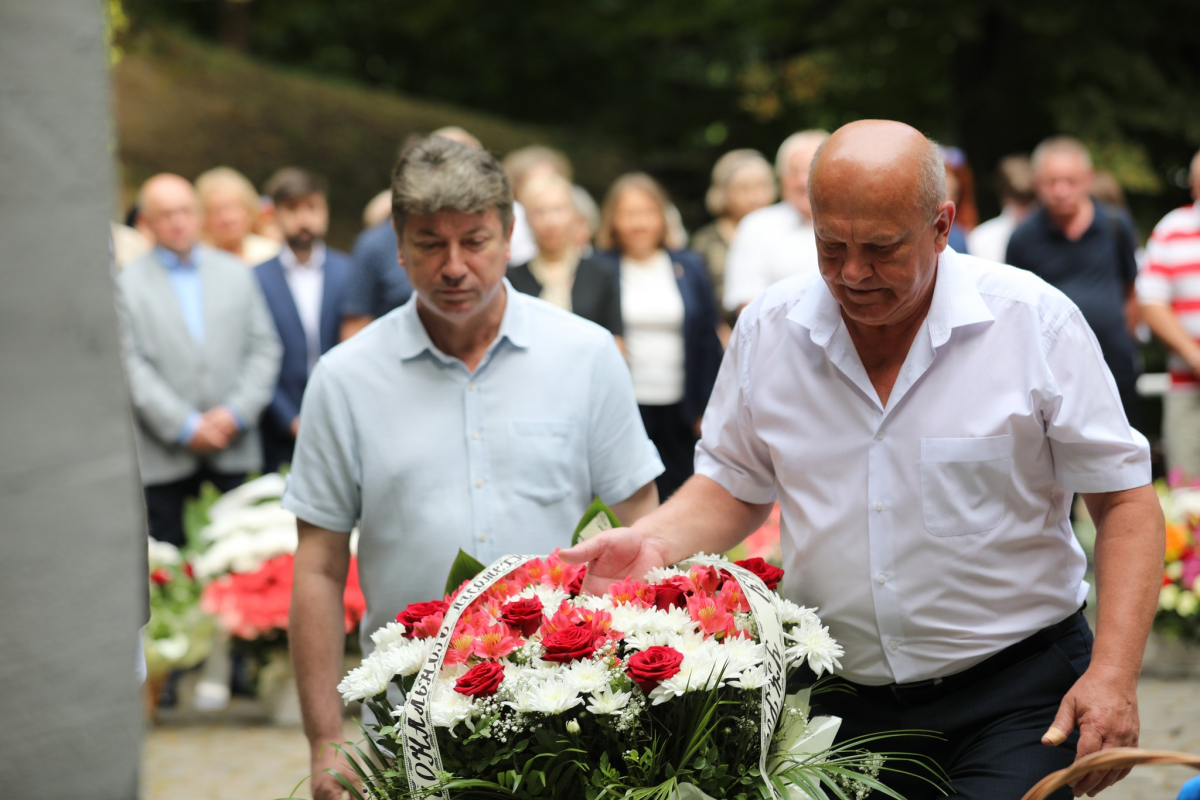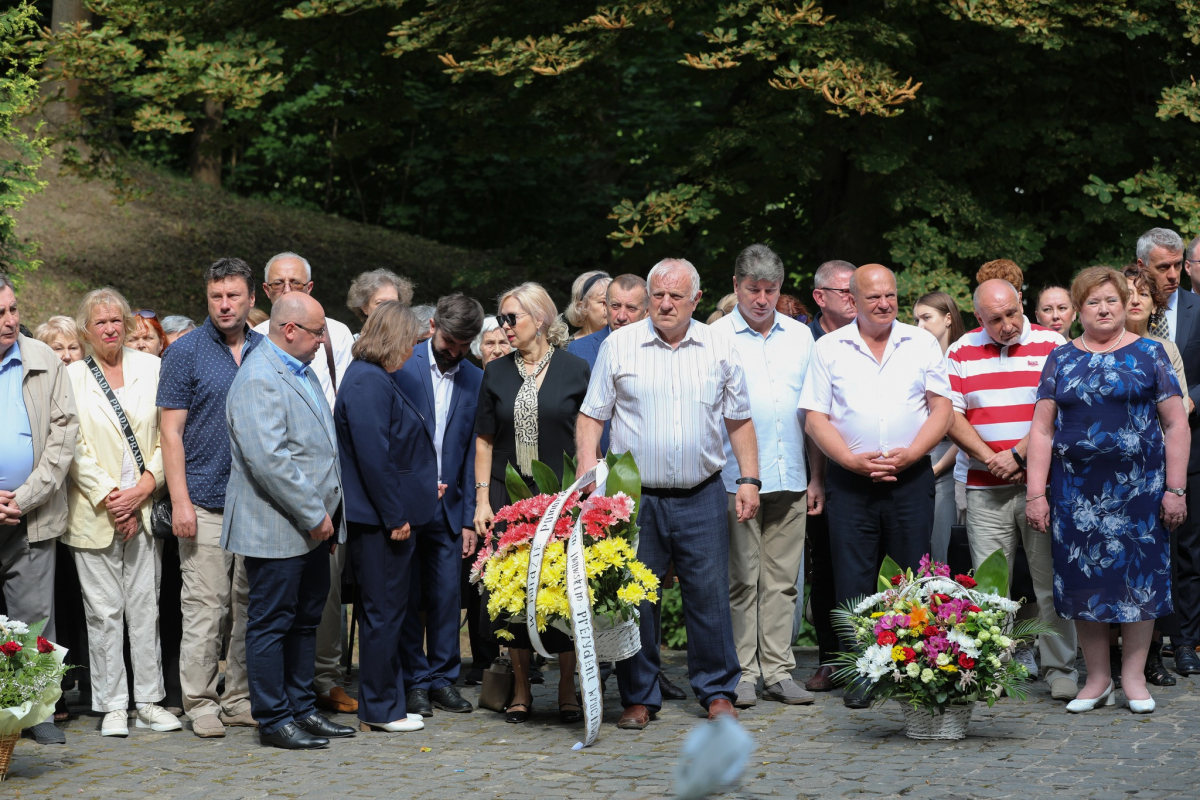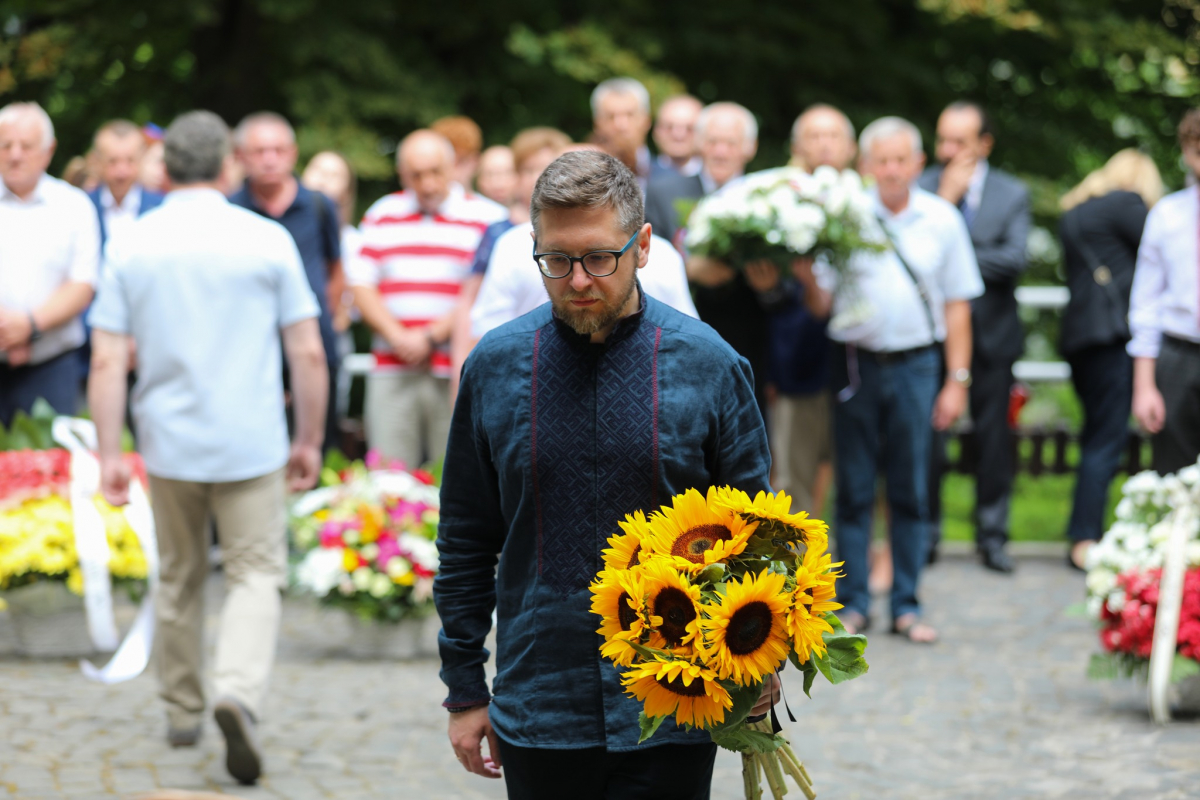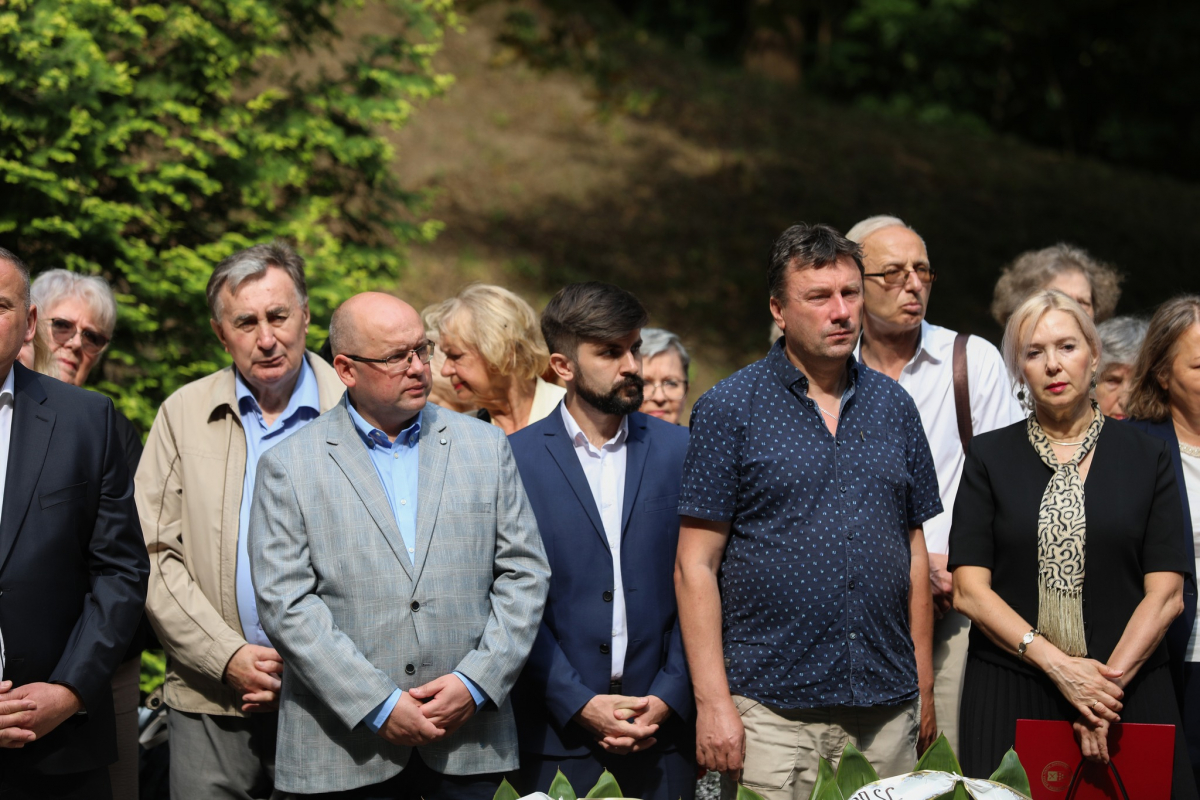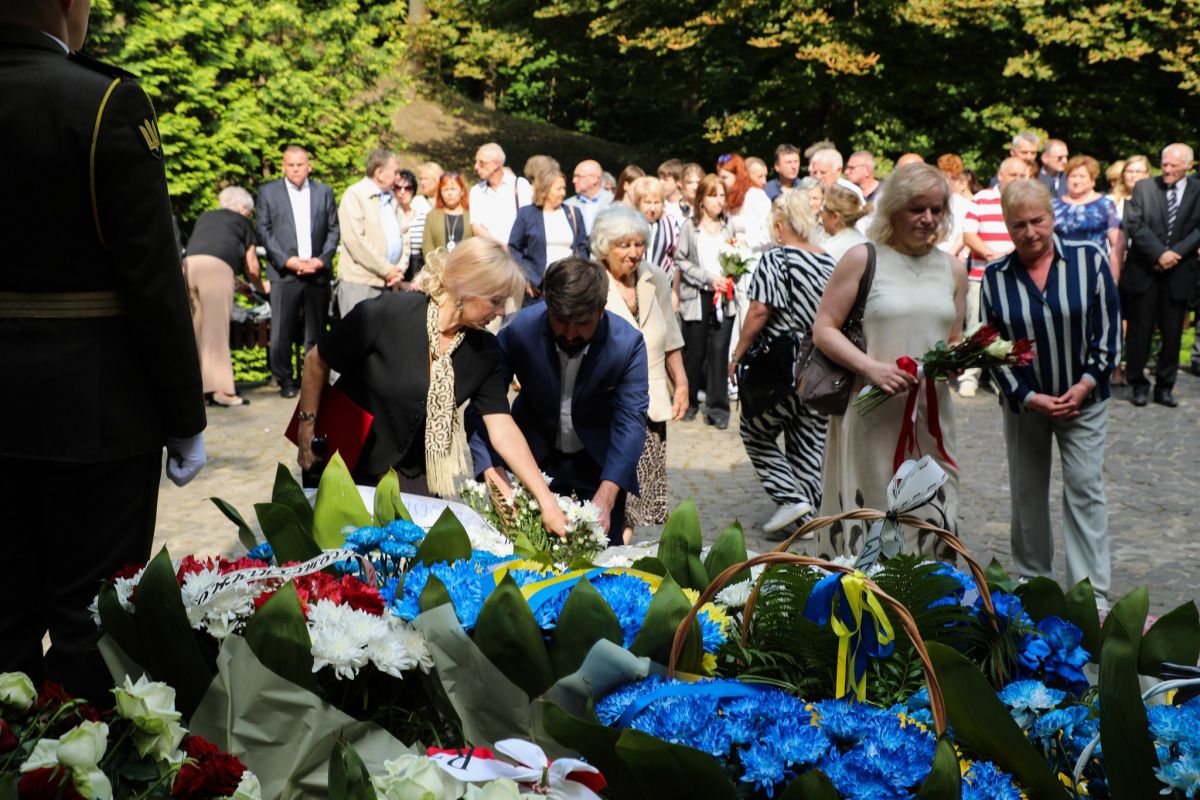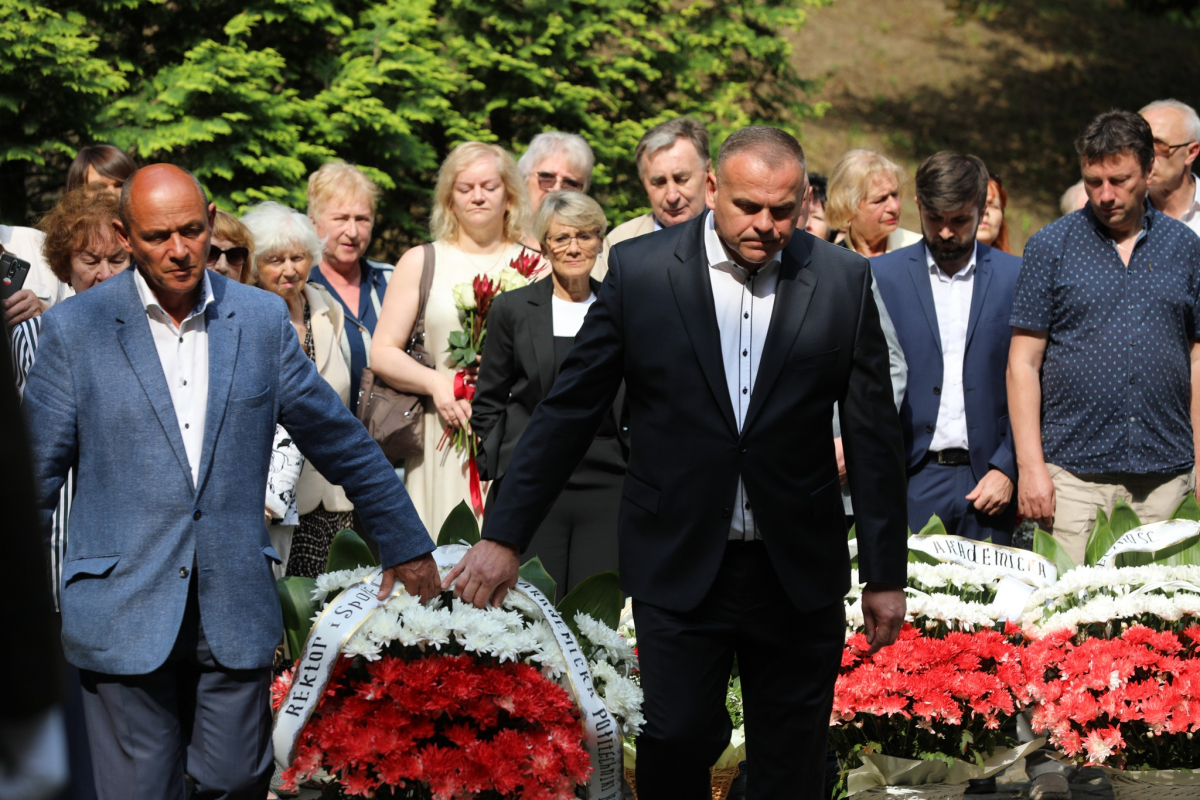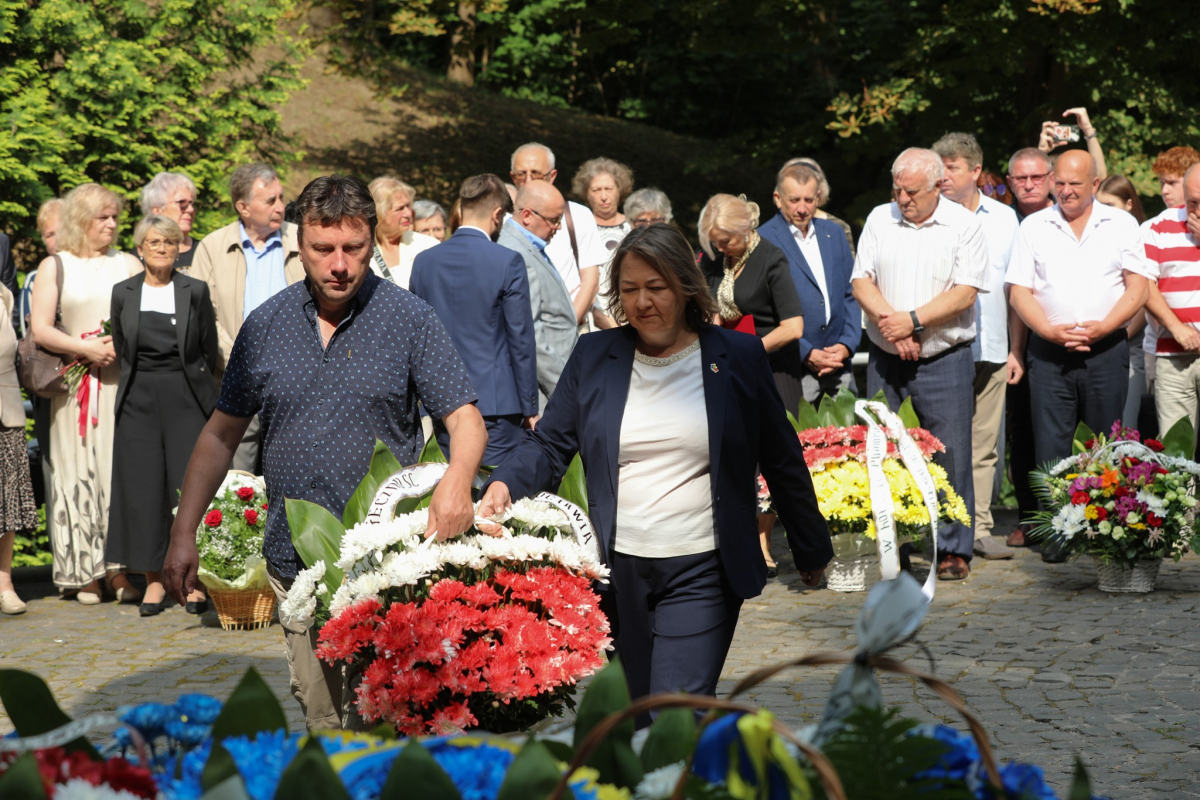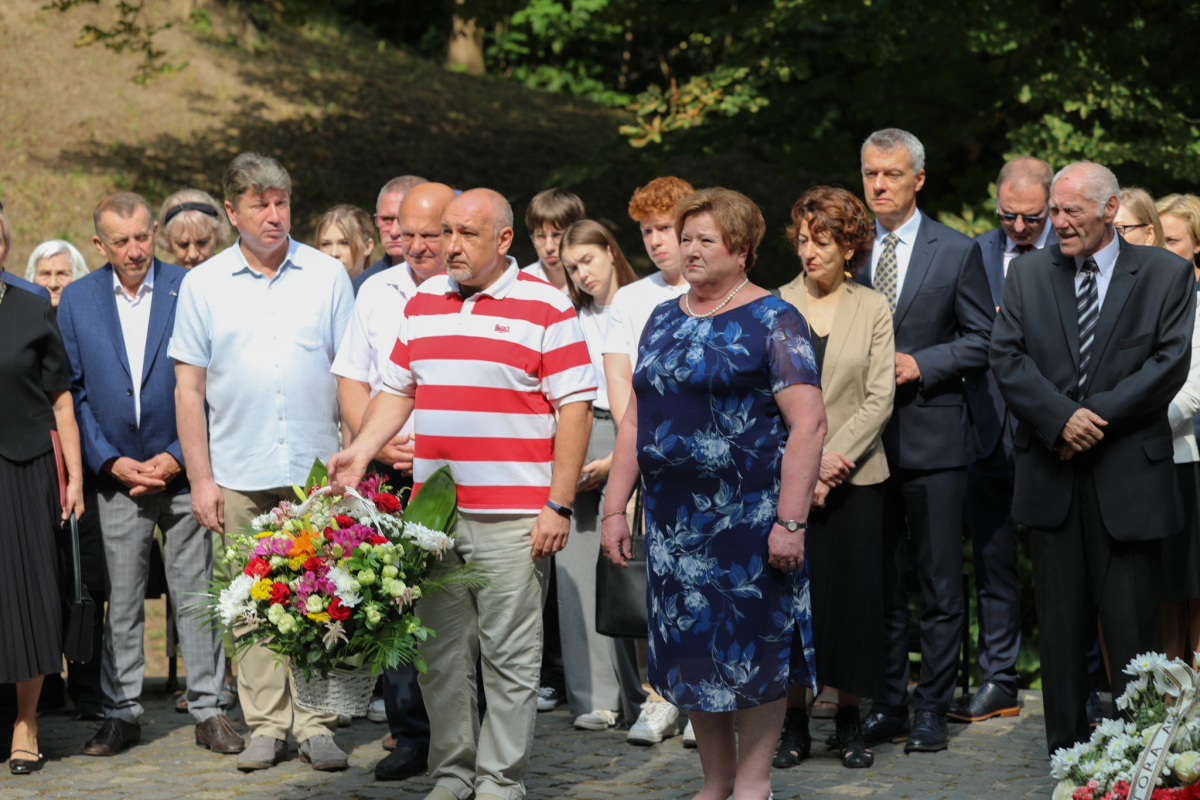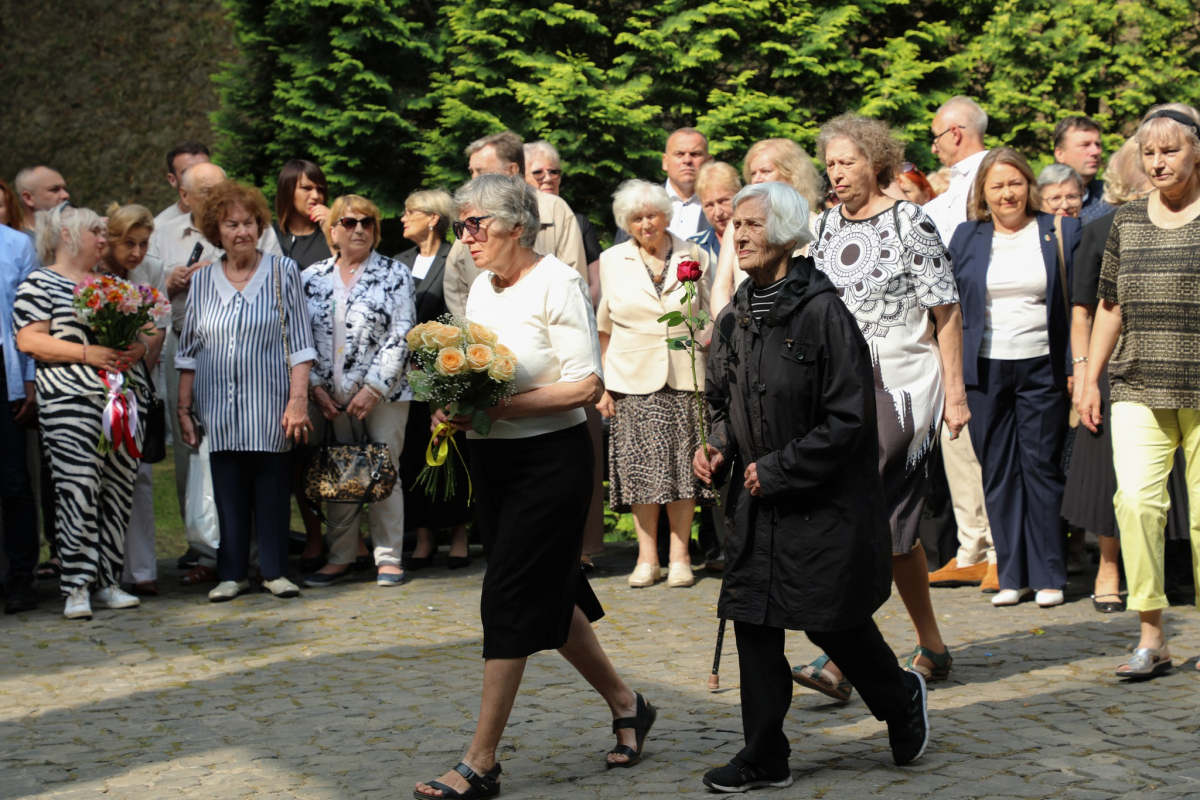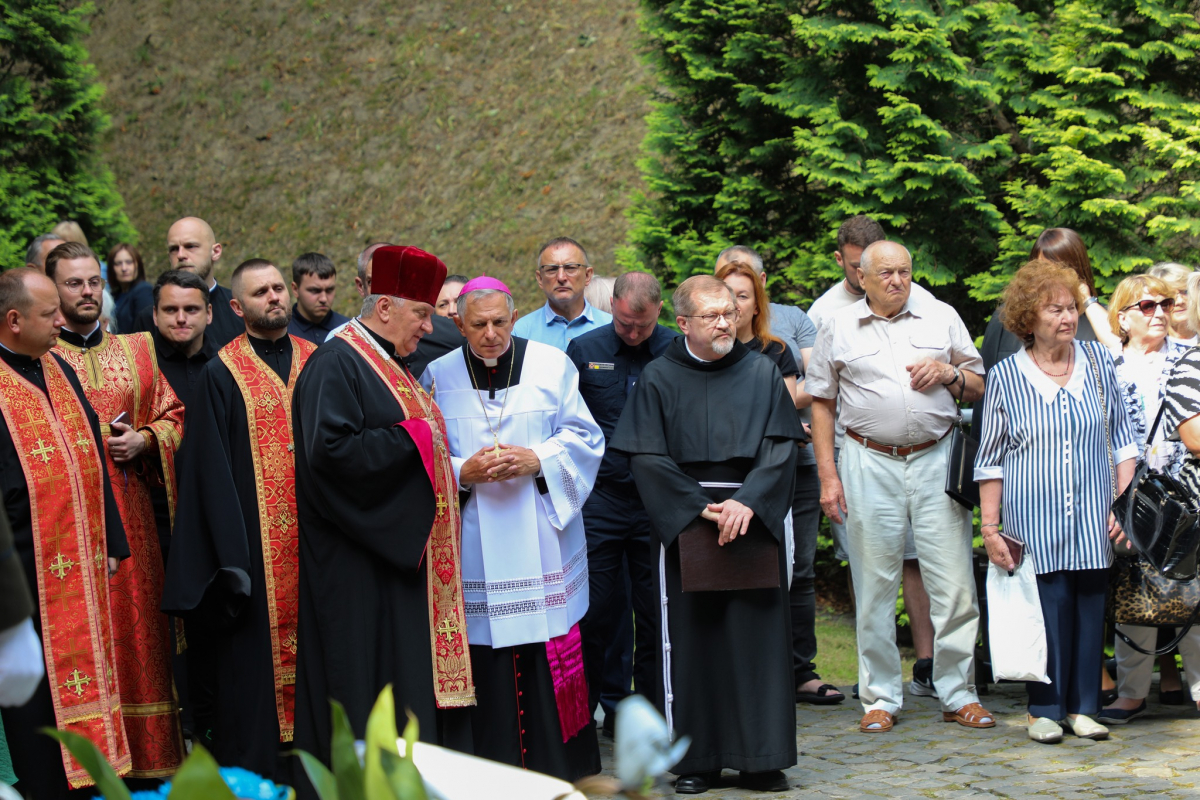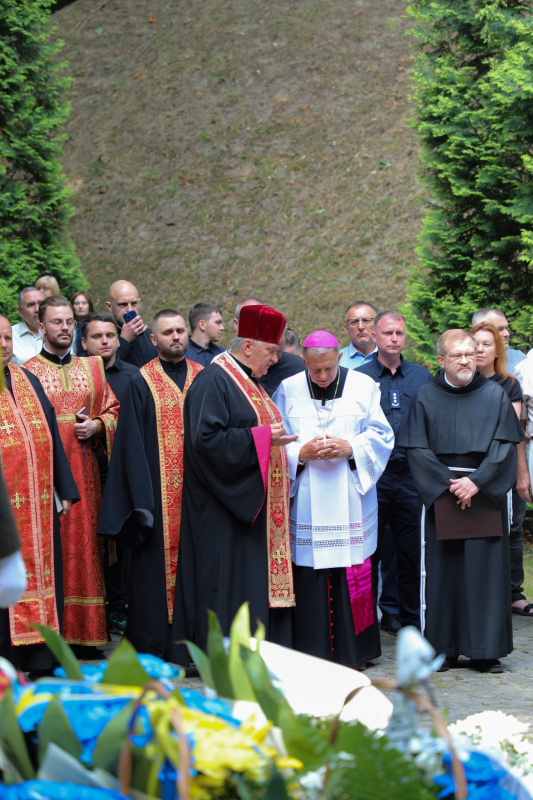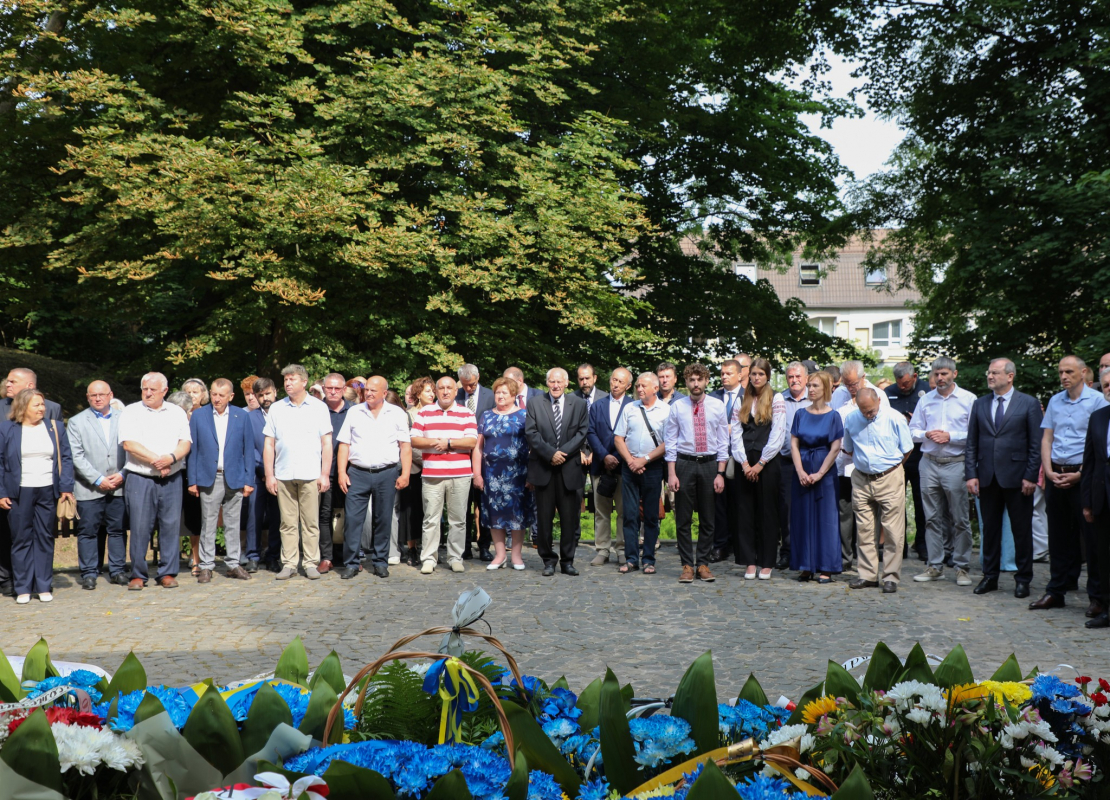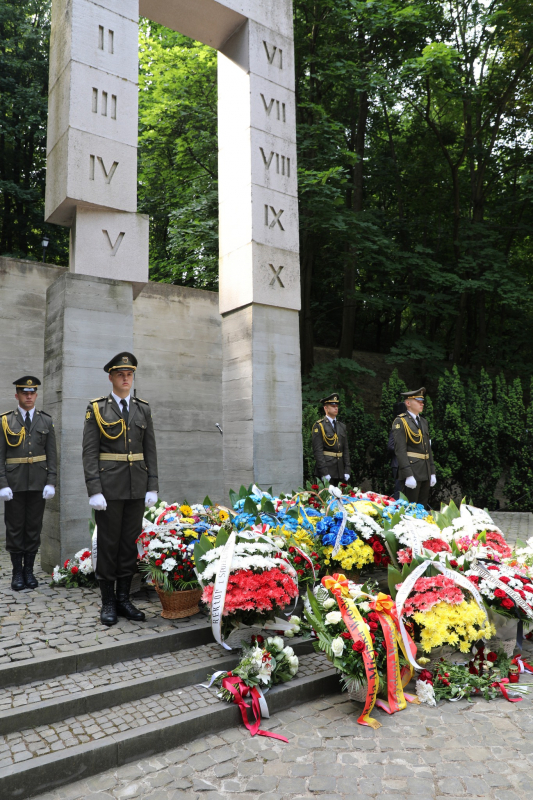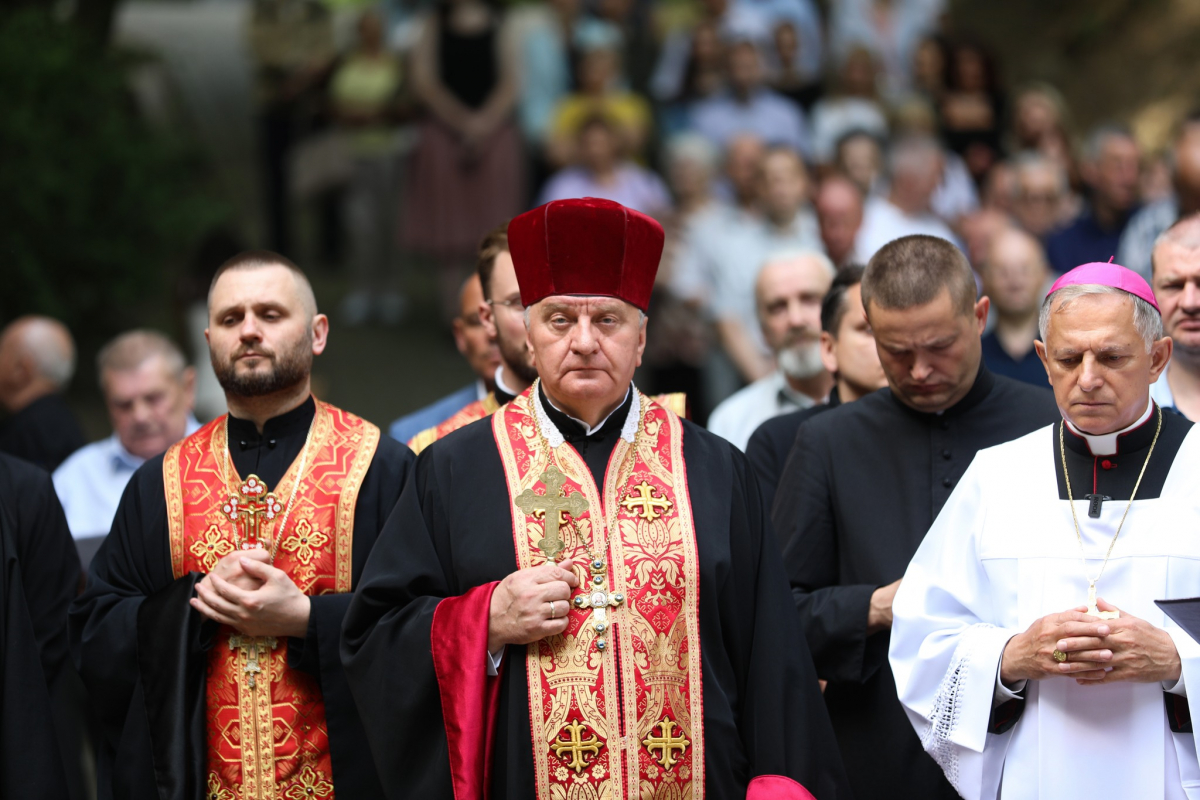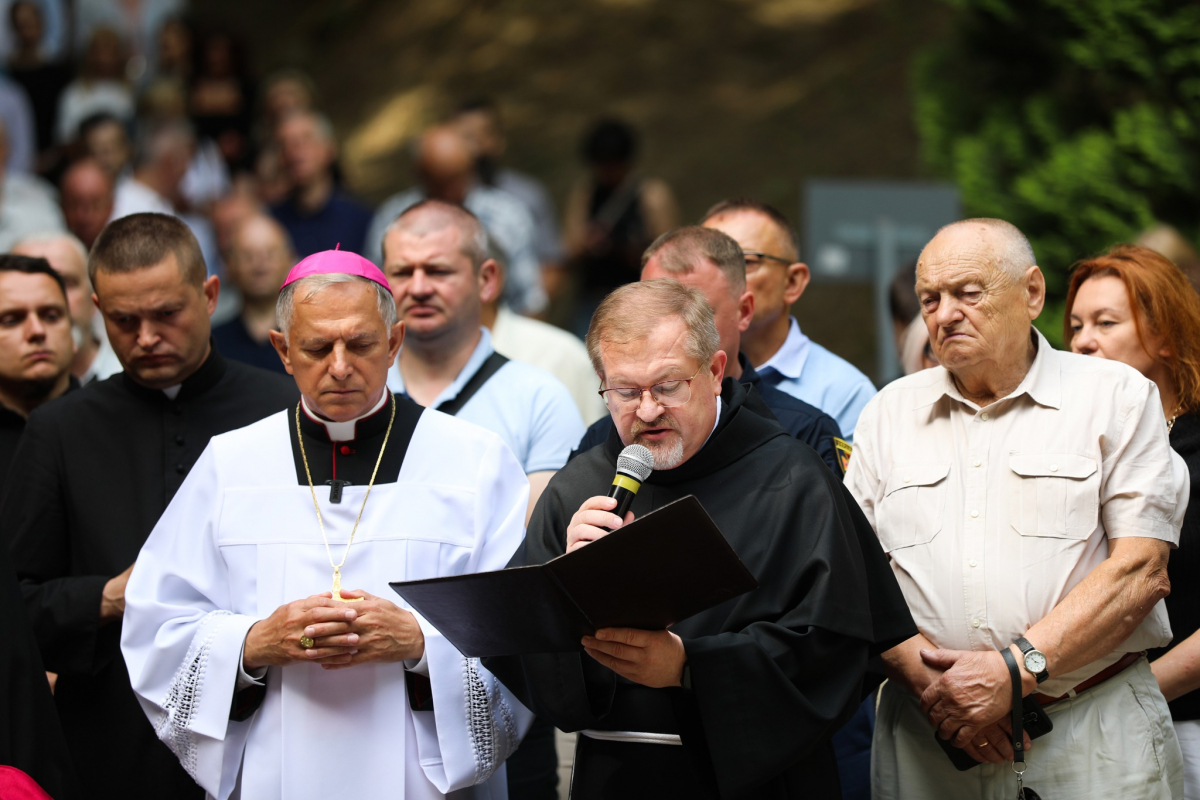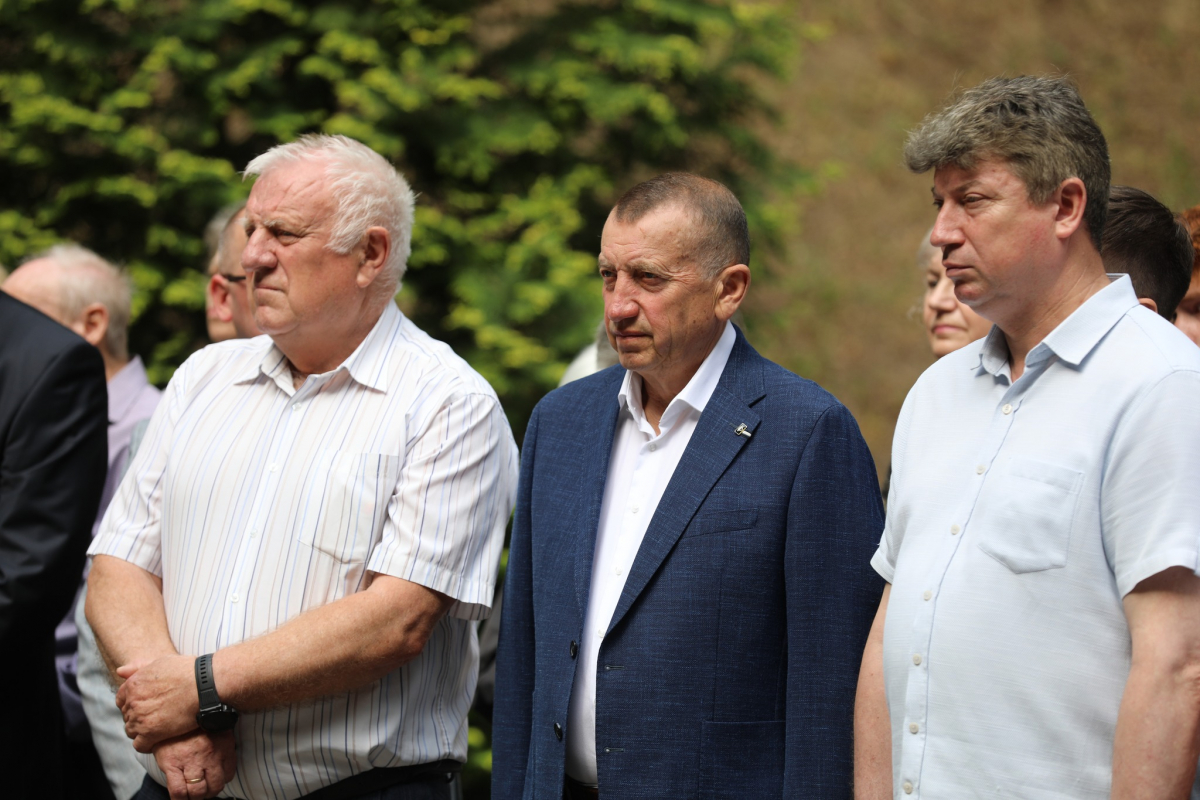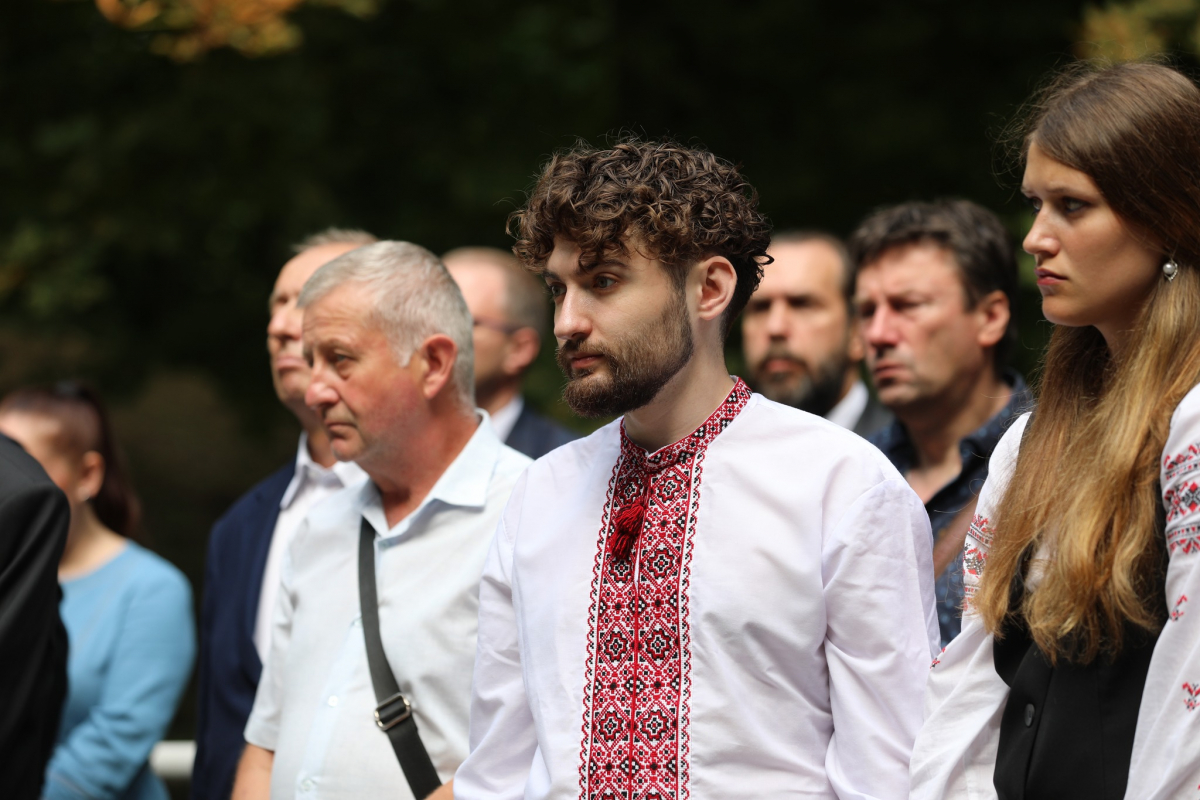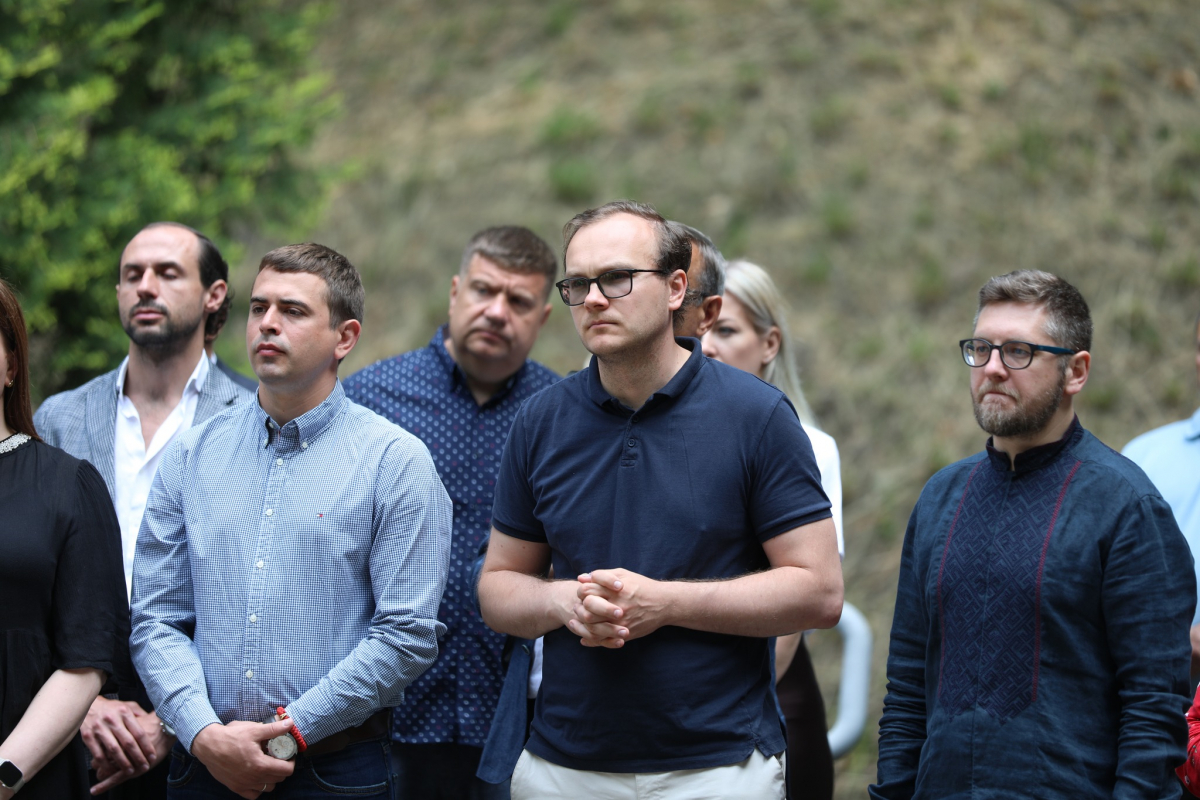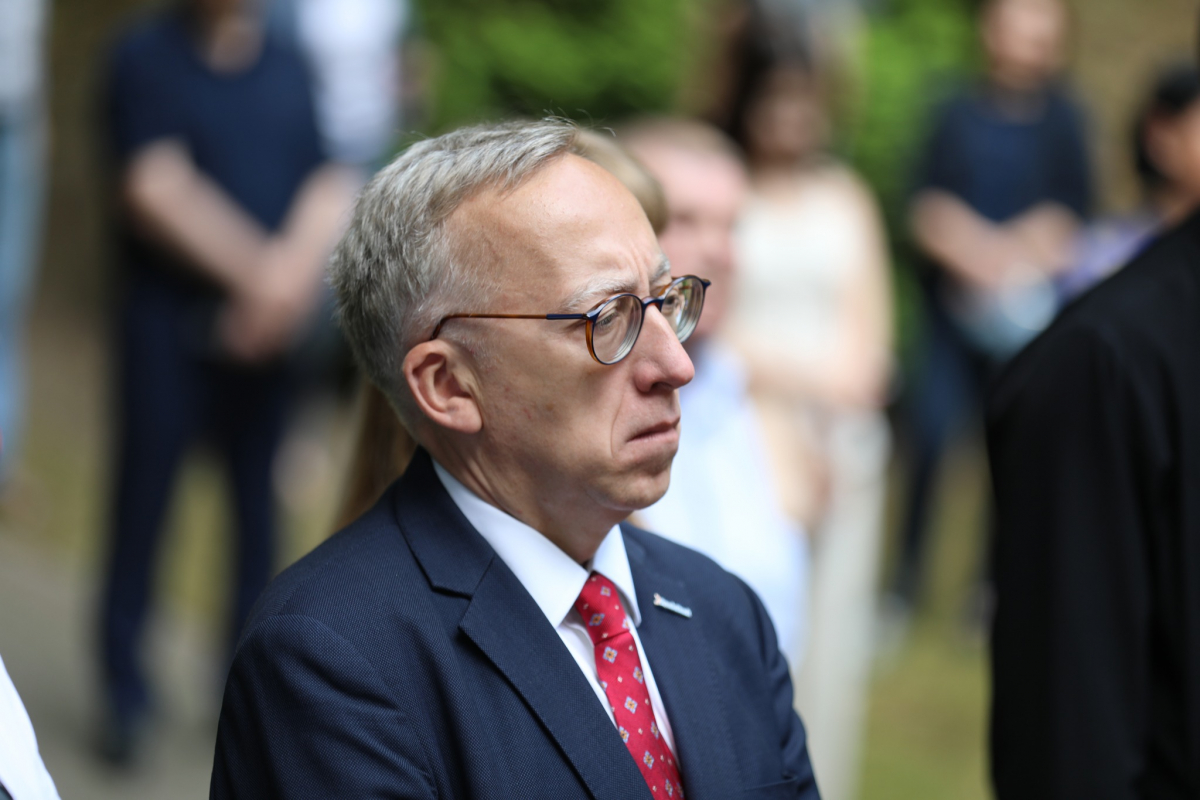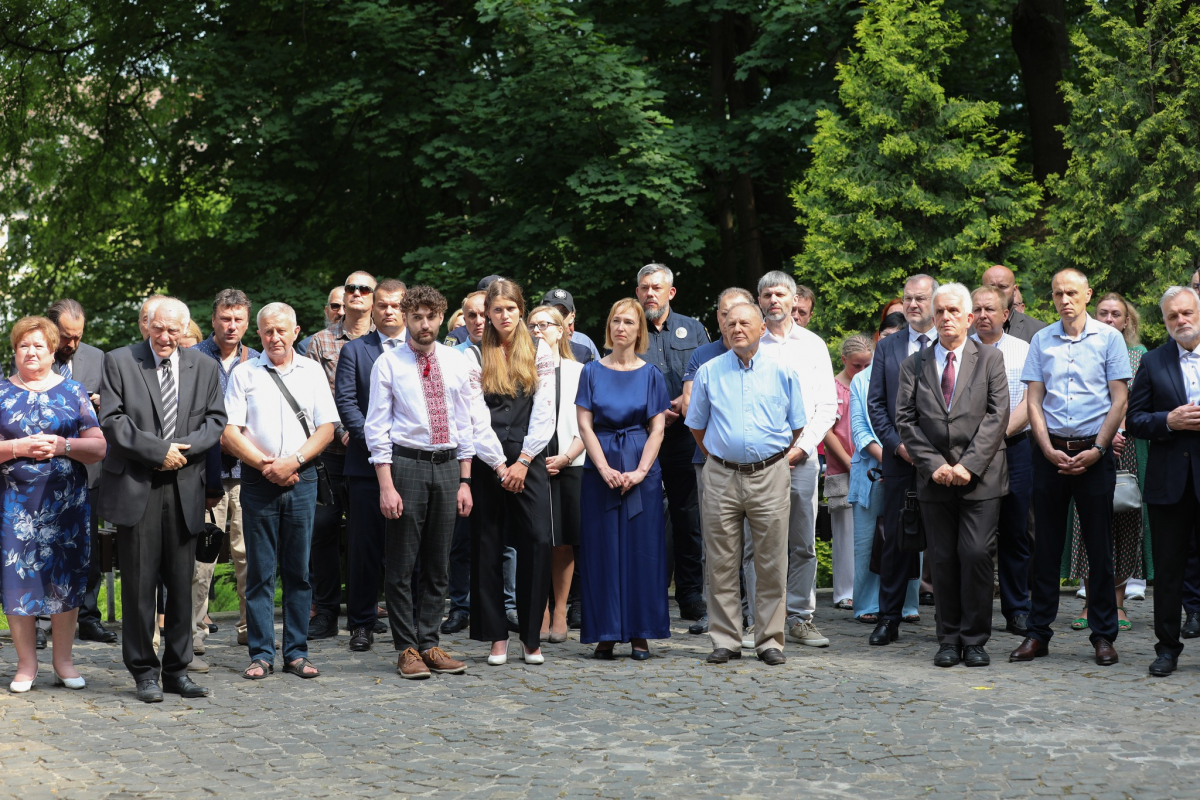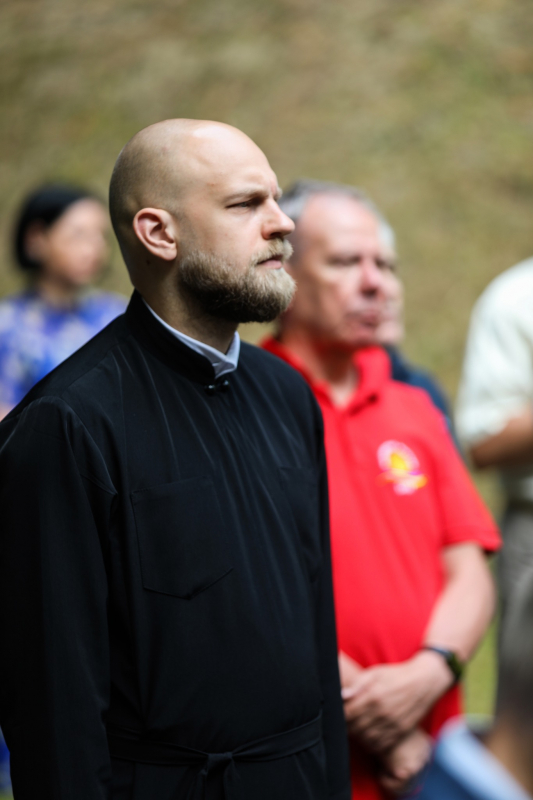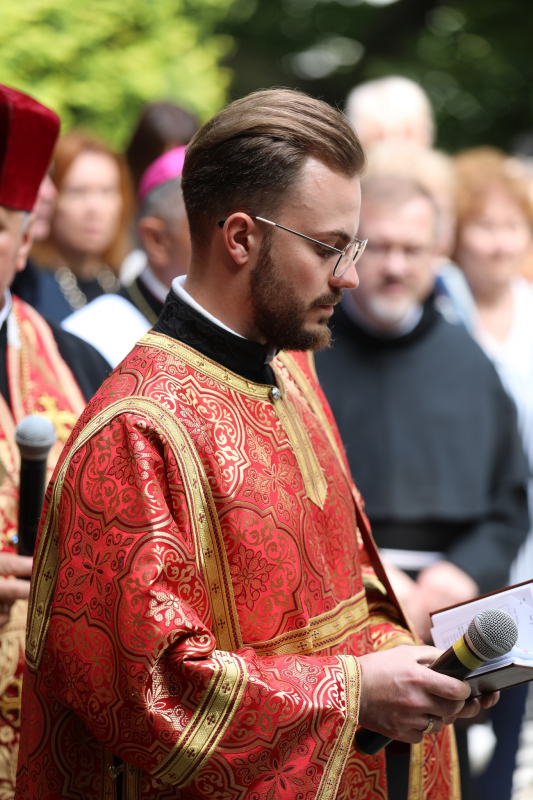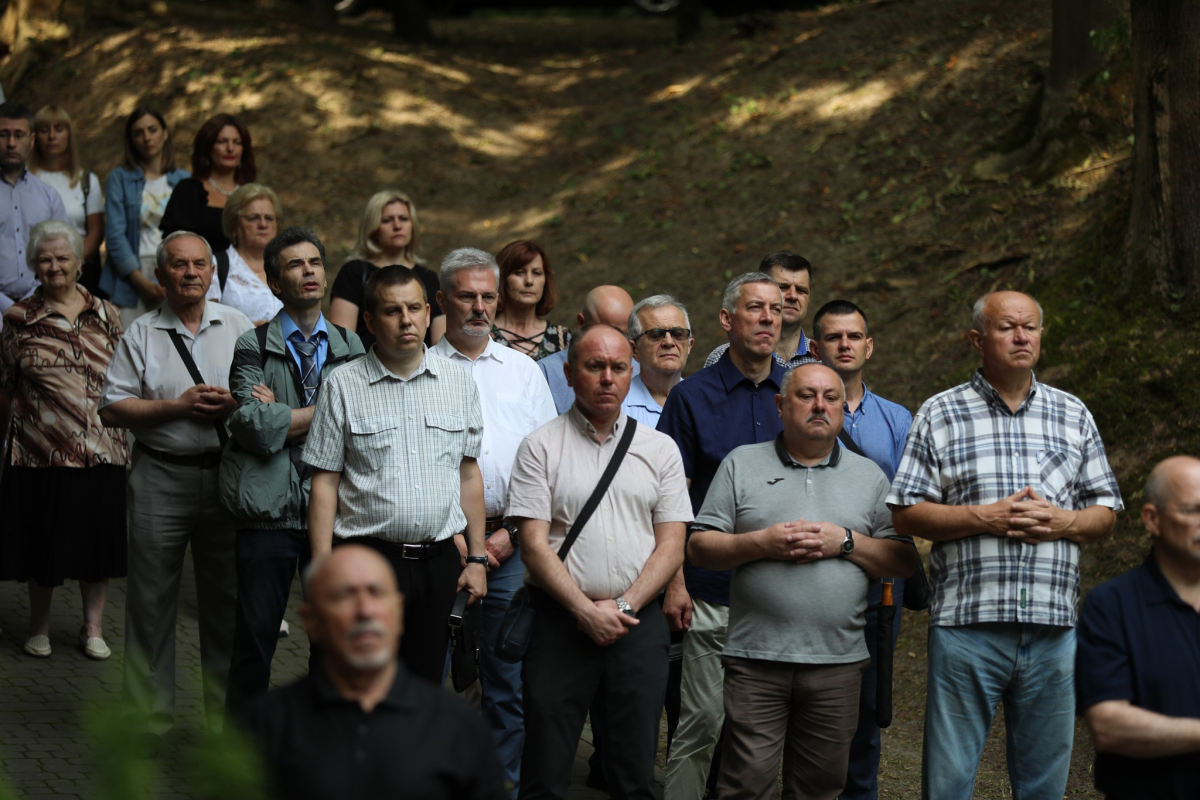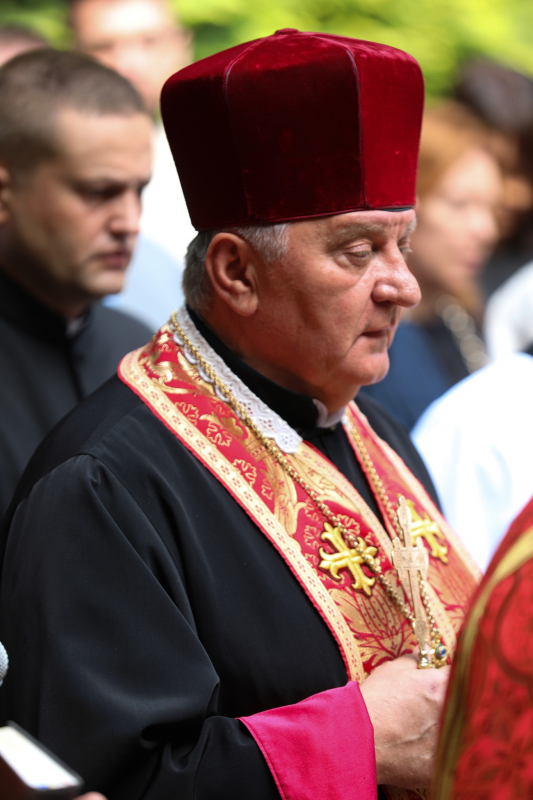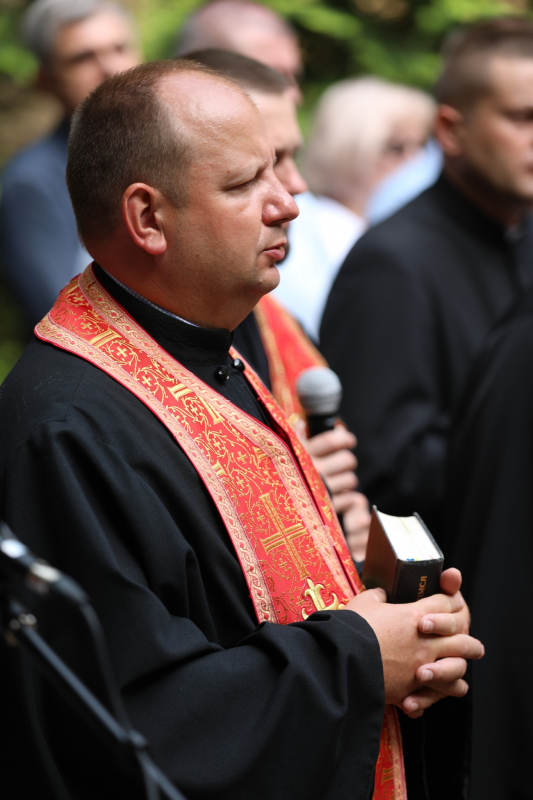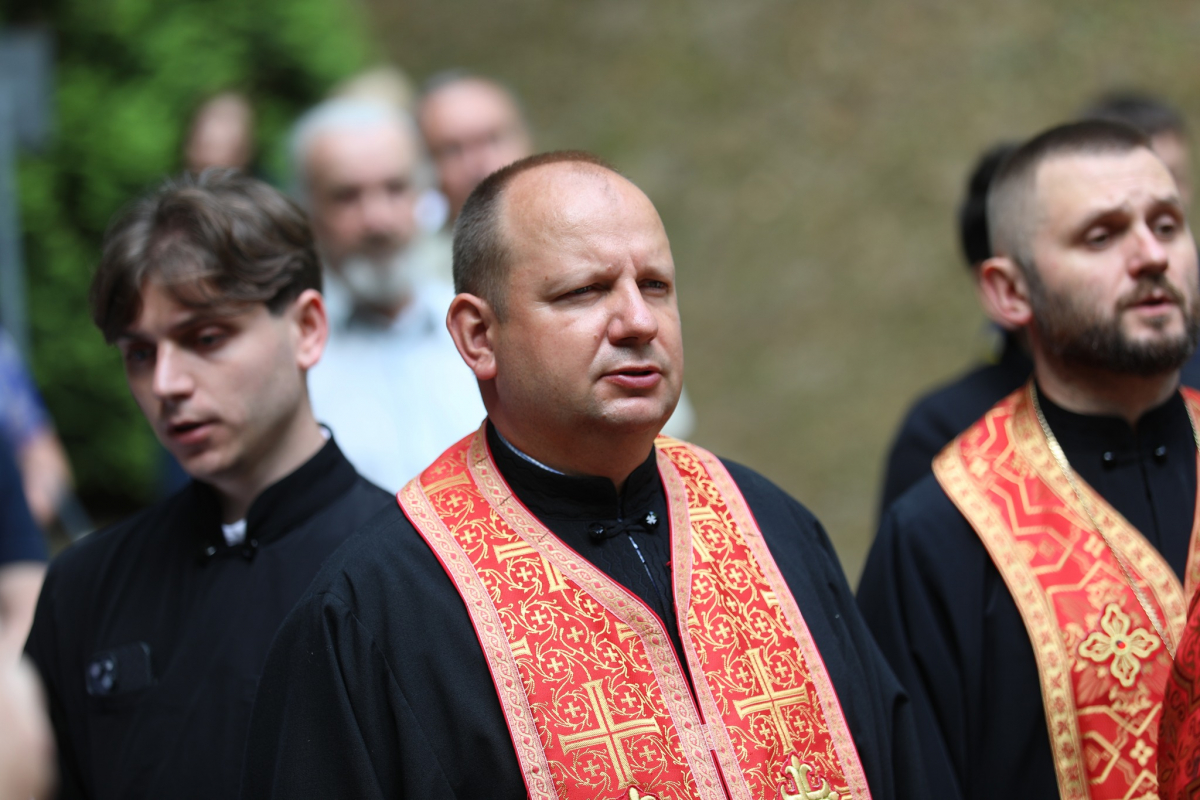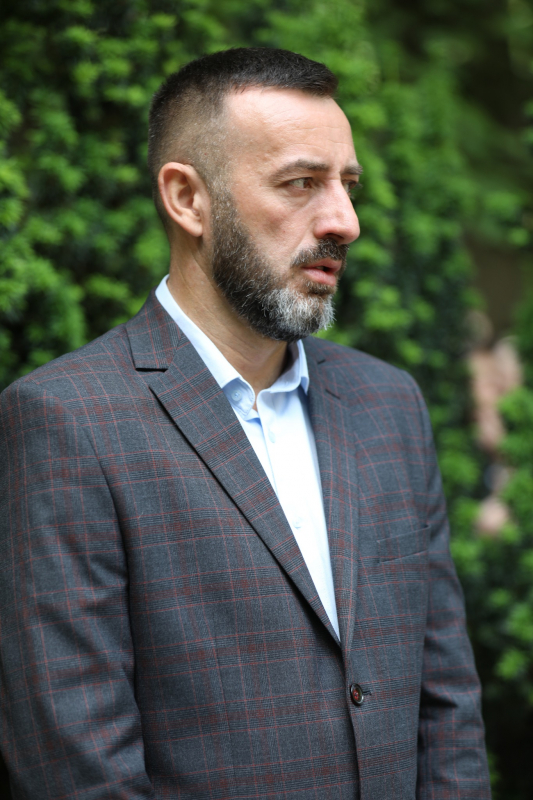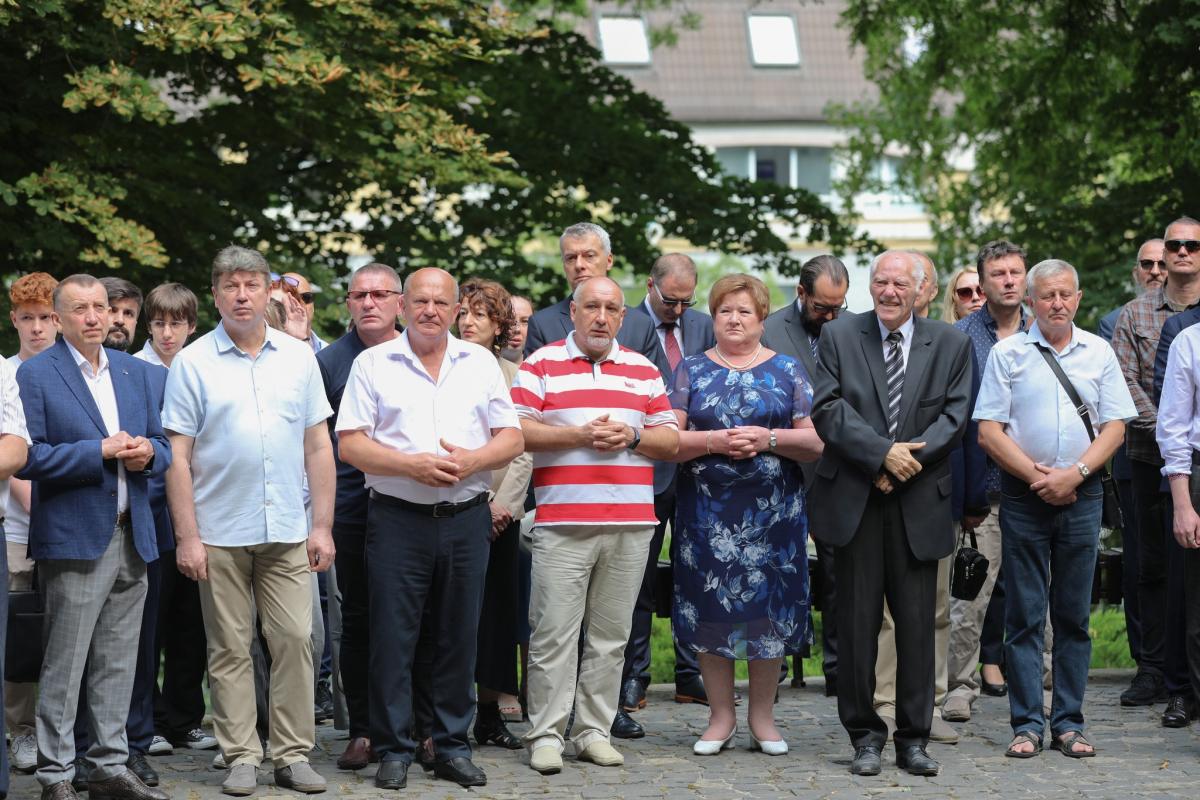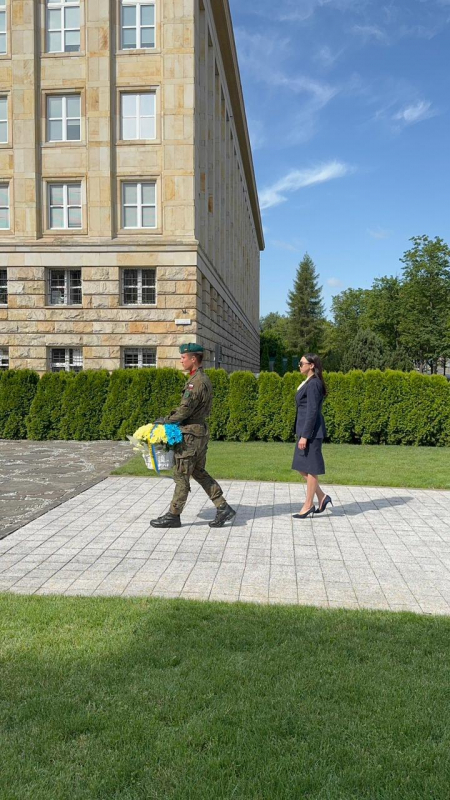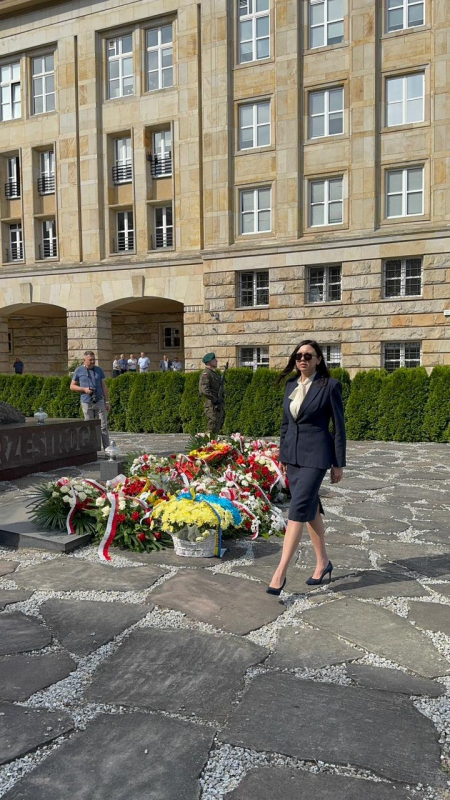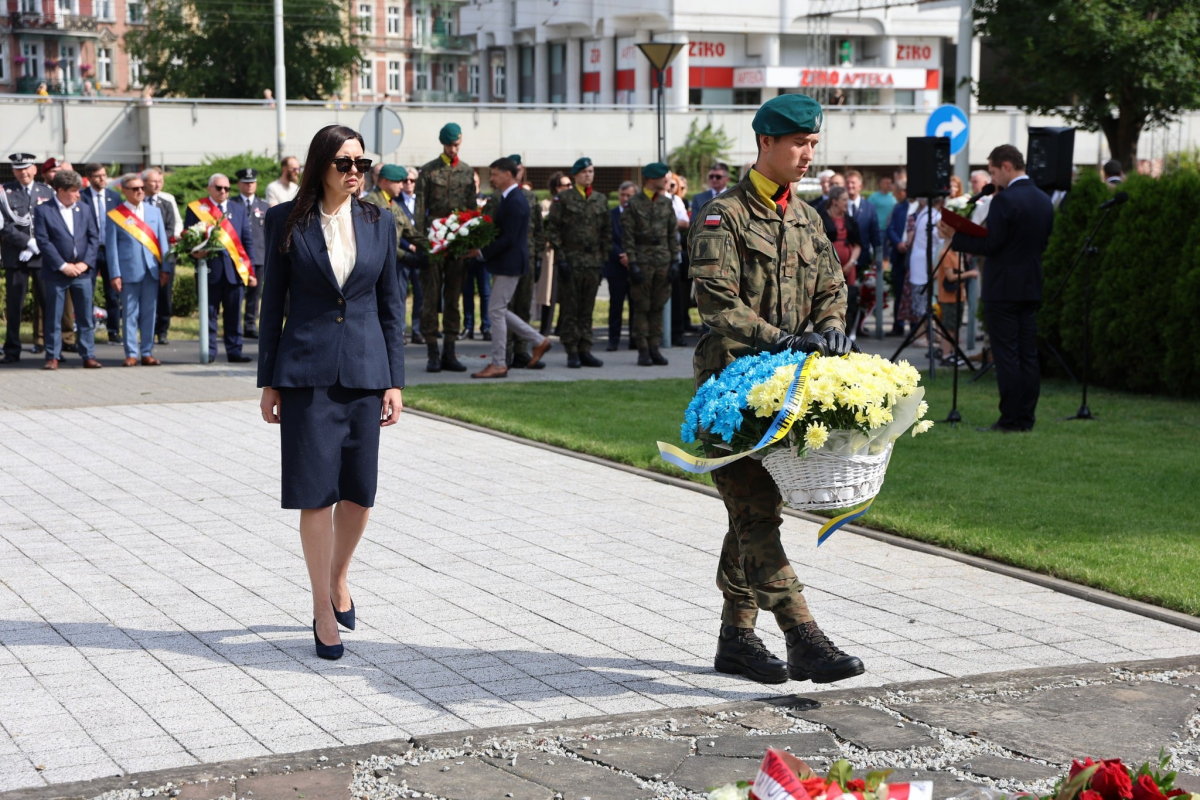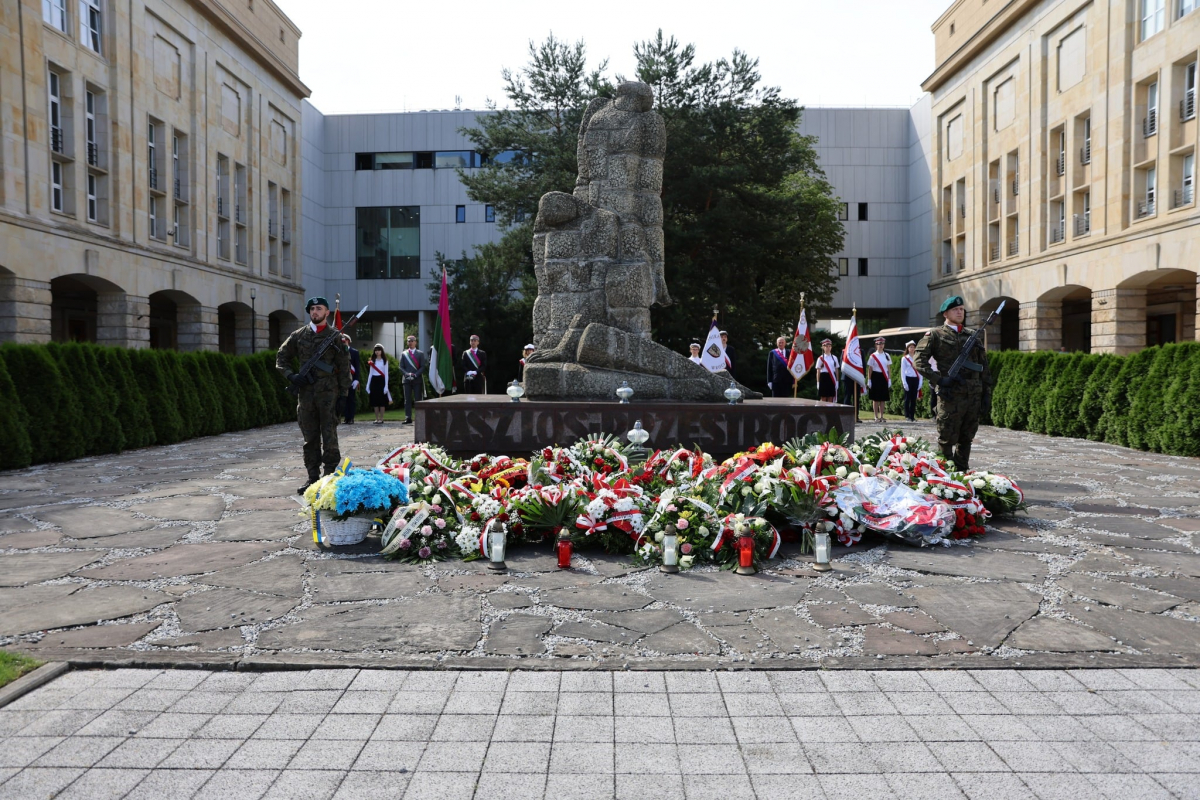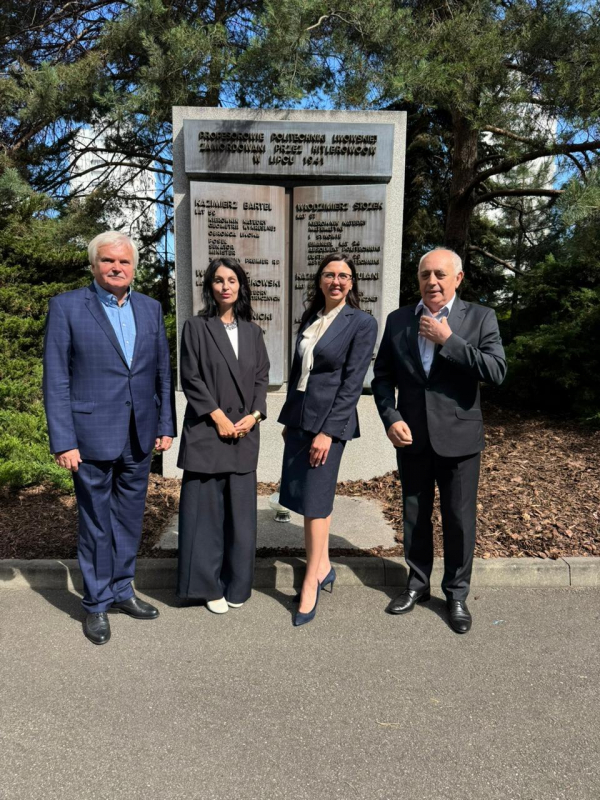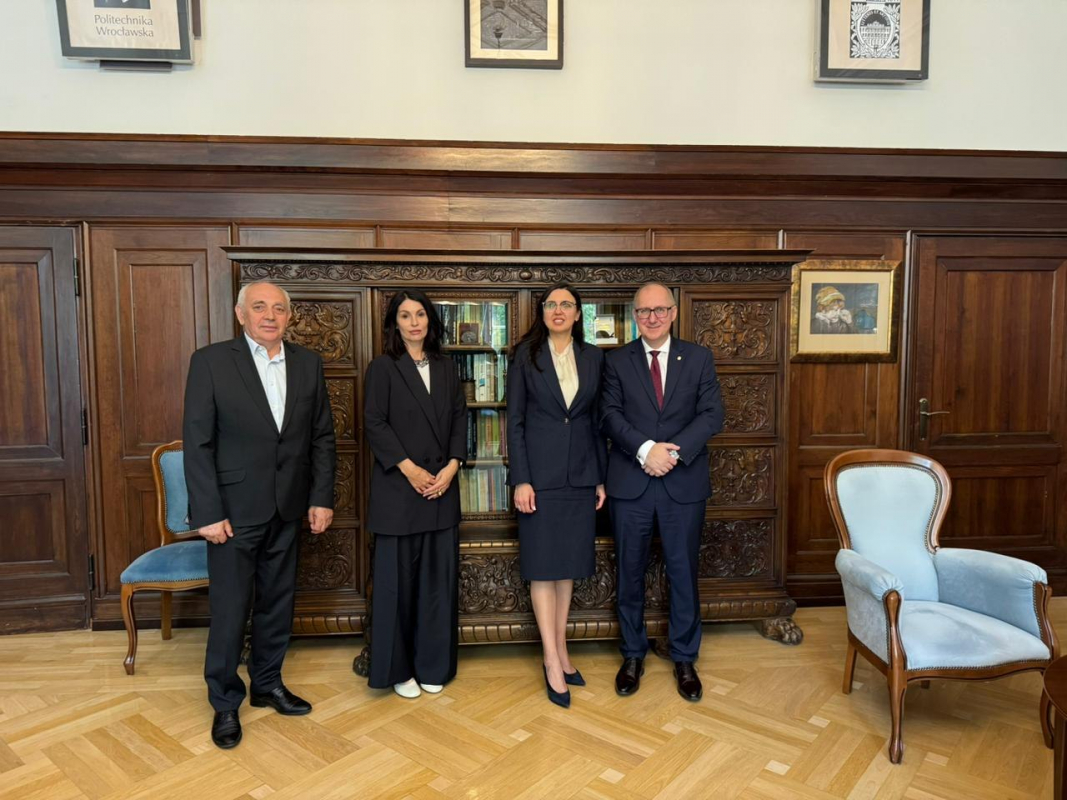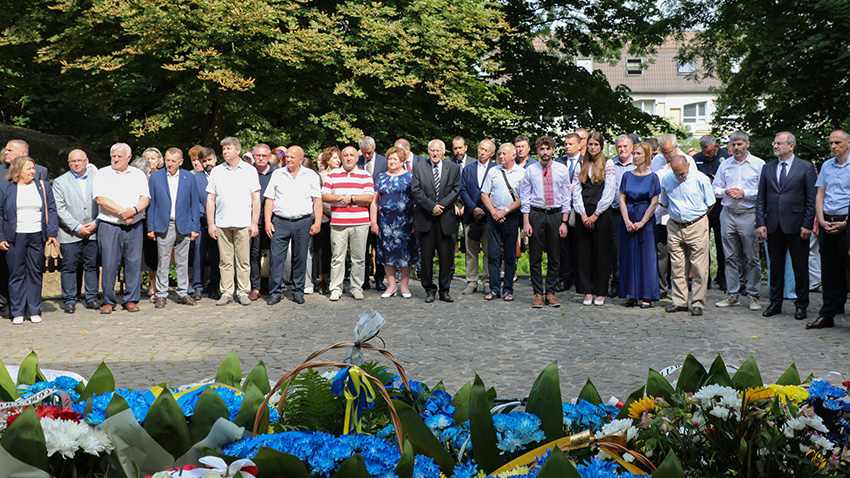On 4 July, commemorative events dedicated to the 84th anniversary of one of the most tragic episodes in the common history of Ukraine and Poland - the mass shooting of Lviv professors in July 1941 - took place in Lviv, on the Vuletsky Hills. Representatives of the Ukrainian and Polish academic community, authorities of Lviv and the region, diplomats, clergy, the public, and students attended the event.
On the night of 3-4 July 1941, the Nazi occupiers arrested more than two dozen leading scholars of Lviv universities. Around four o'clock in the morning, they were taken with their family members to the Vuletsky Hills, where they were brutally shot. In total, more than 20 people were killed - representatives of the intelligentsia who were the brain and heart of academic Lviv.
Among them there were the Vice-Rector of Lviv Polytechnic Antoni Łomnicki, writer and translator Tadeusz Boy-Żeleński, Dean of the Medical Faculty Tadeusz Ostrowski, rector of Lviv University Roman Longchamps de Bérier, and Rector and Vice-Rector of Lviv Polytechnic Kasper Weigel. These were world known figures whose scientific work had a great impact far beyond the borders of Ukraine and Poland.
The ceremony began with the national anthems of Ukraine and Poland. The participants paid tribute to the victims with a minute of silence. Flowers were laid at the monument by representatives of governmental authorities, Ukrainian and Polish universities, diplomatic missions, religious communities, and civil society organizations.
Rectors and Vice-Rectors of Lviv universities, including Lviv Polytechnic National University, Ivan Franko National University of Lviv, Danylo Halytsky Lviv National Medical University, Hetman Petro Sahaidachnyi National Ground Forces Academy, Ukrainian Catholic University, Ukrainian National Forestry University, Lviv State University of Internal Affairs and others took part in the event.
The tragedy on the Vuletsky Hills is a deep wound that continues to hurt today. The Nazi regime, like the Soviet regime, sought to destroy the intellectual elite in order to undermine the very foundation of national consciousness. That is why Ukraine, which continues to fight, feels the tragedy of losing its intelligentsia especially deeply.
During the current war, Poland has become not only a neighbour to Ukraine, but a true friend and brother. Millions of Ukrainians have found refuge in Polish homes, Polish universities have accepted students and scholars, and the state has provided significant humanitarian and military assistance.
